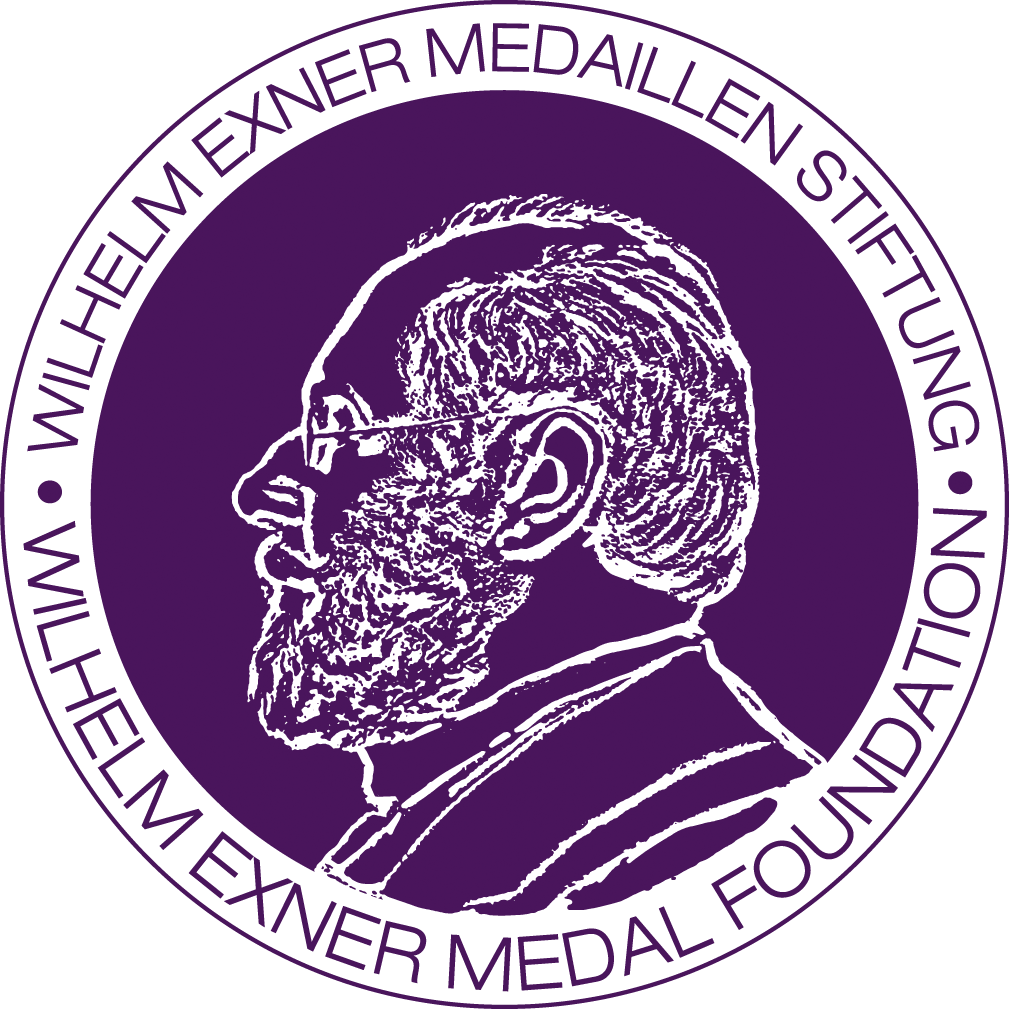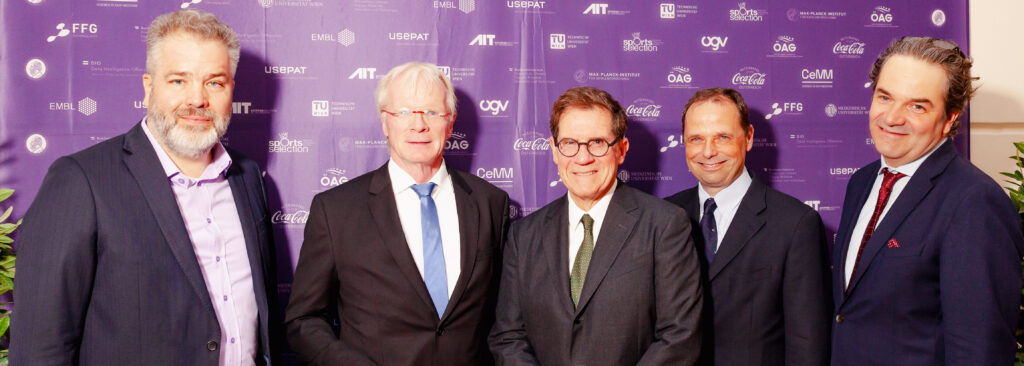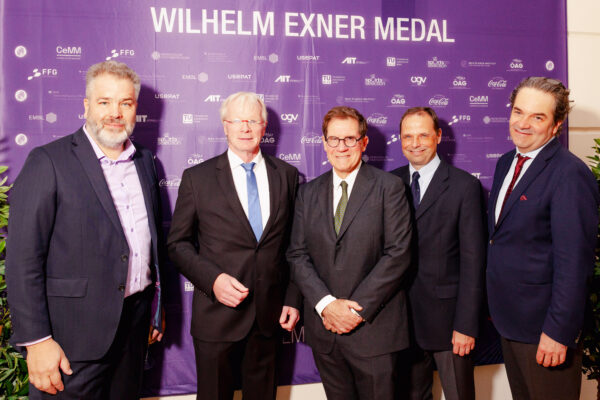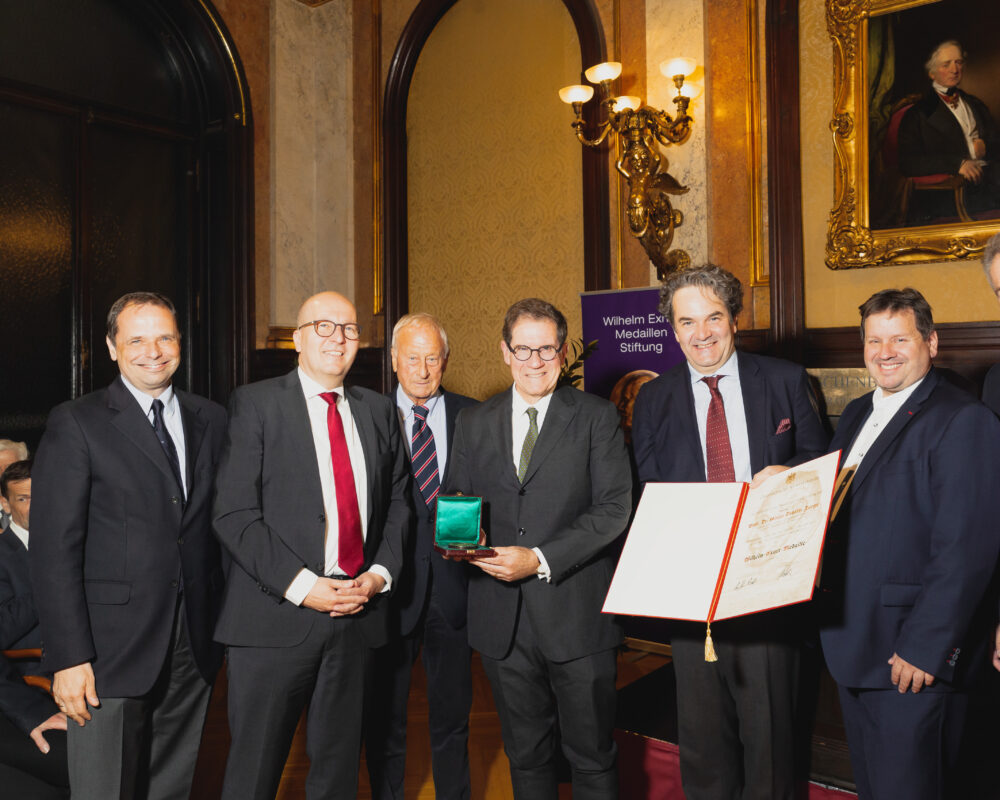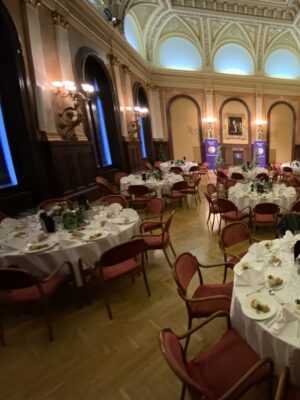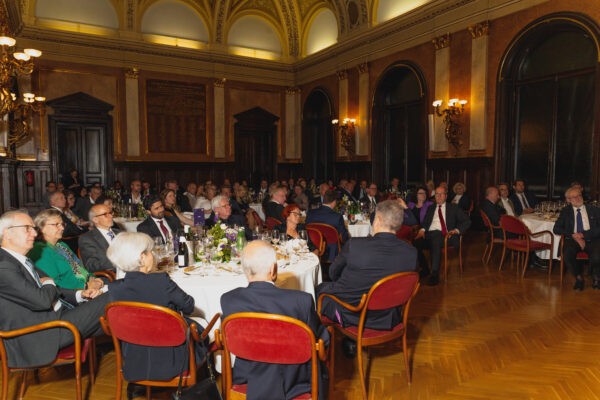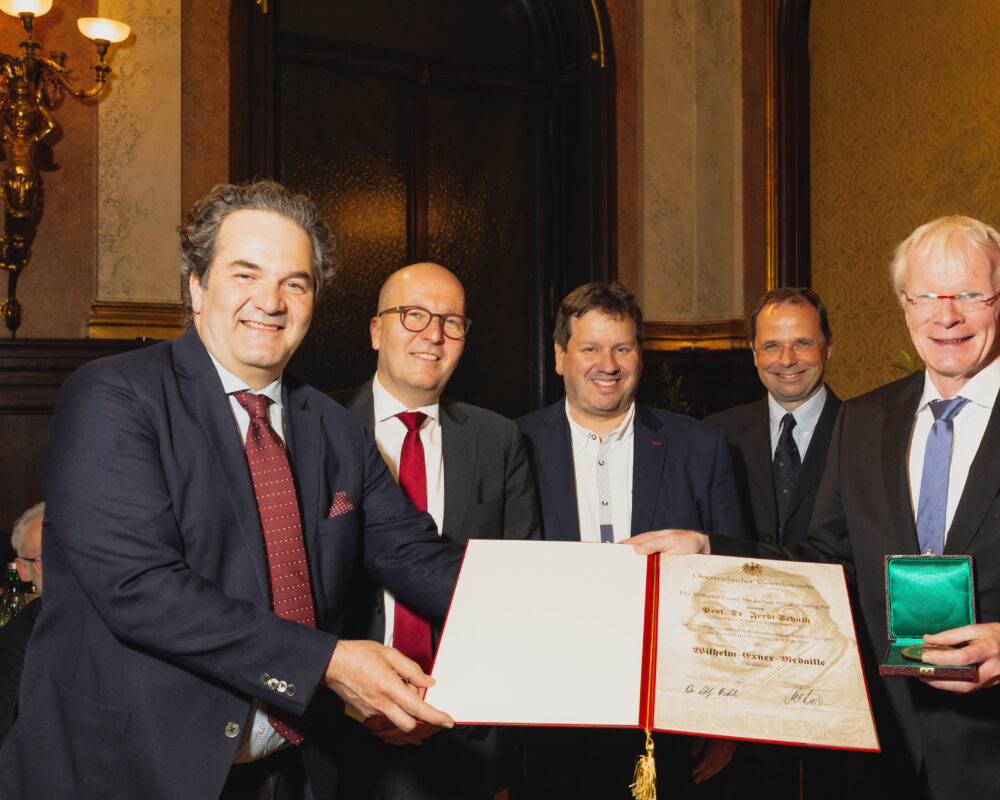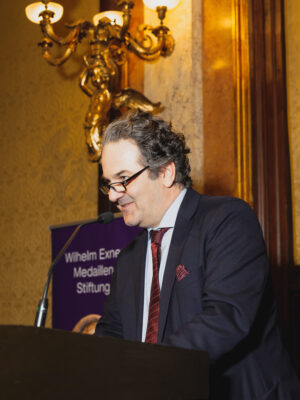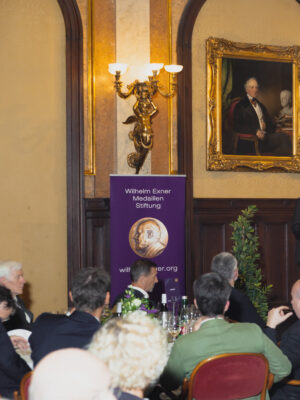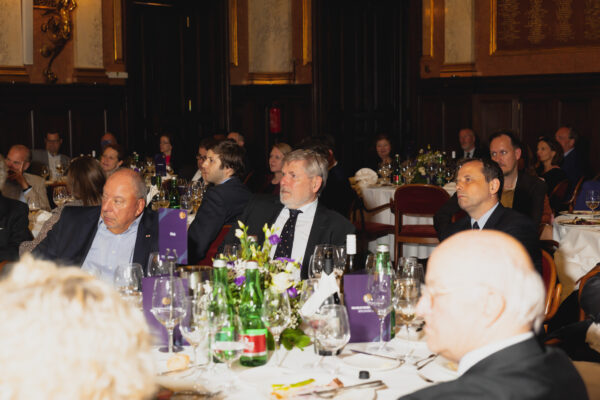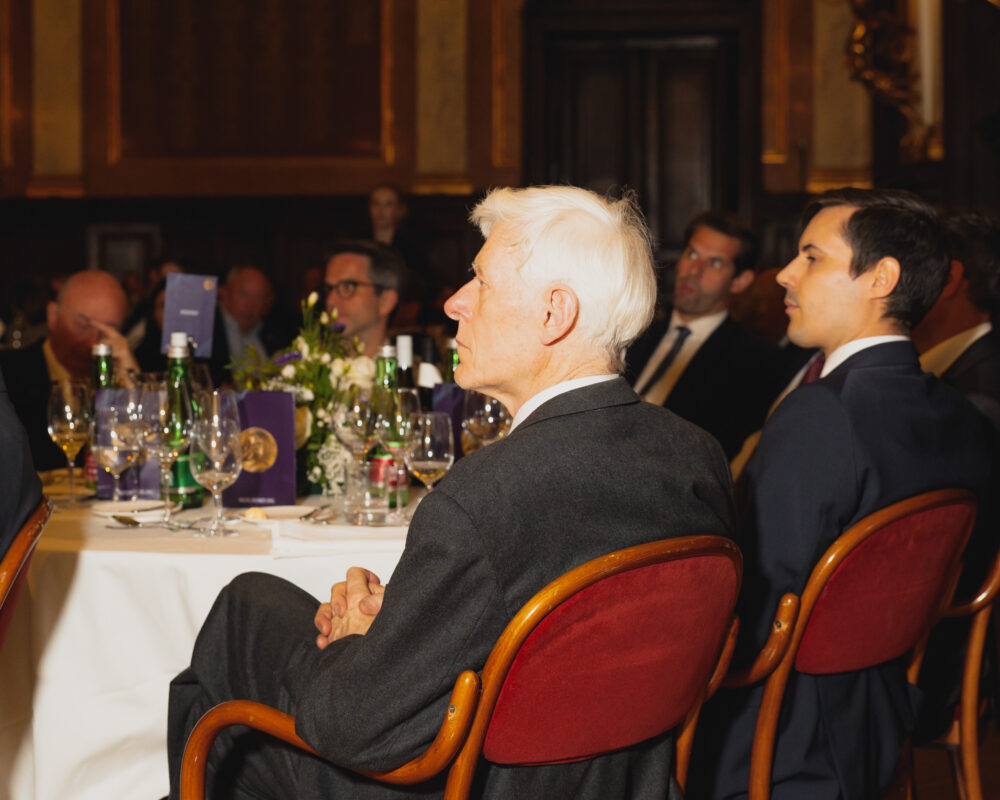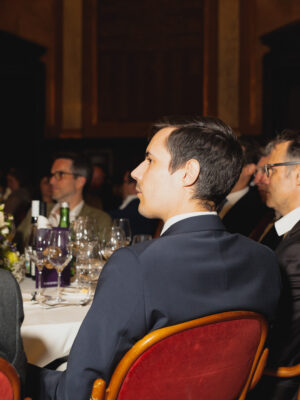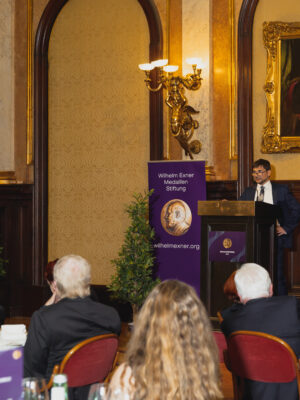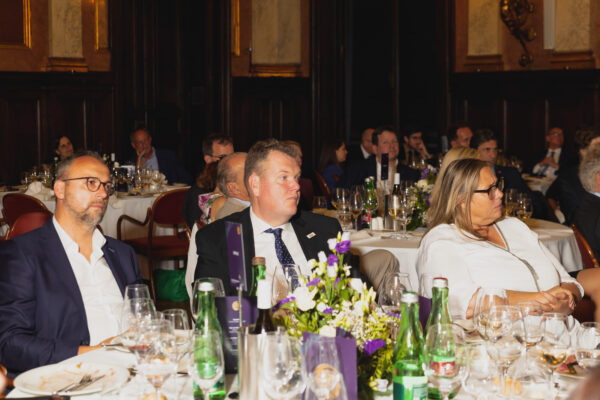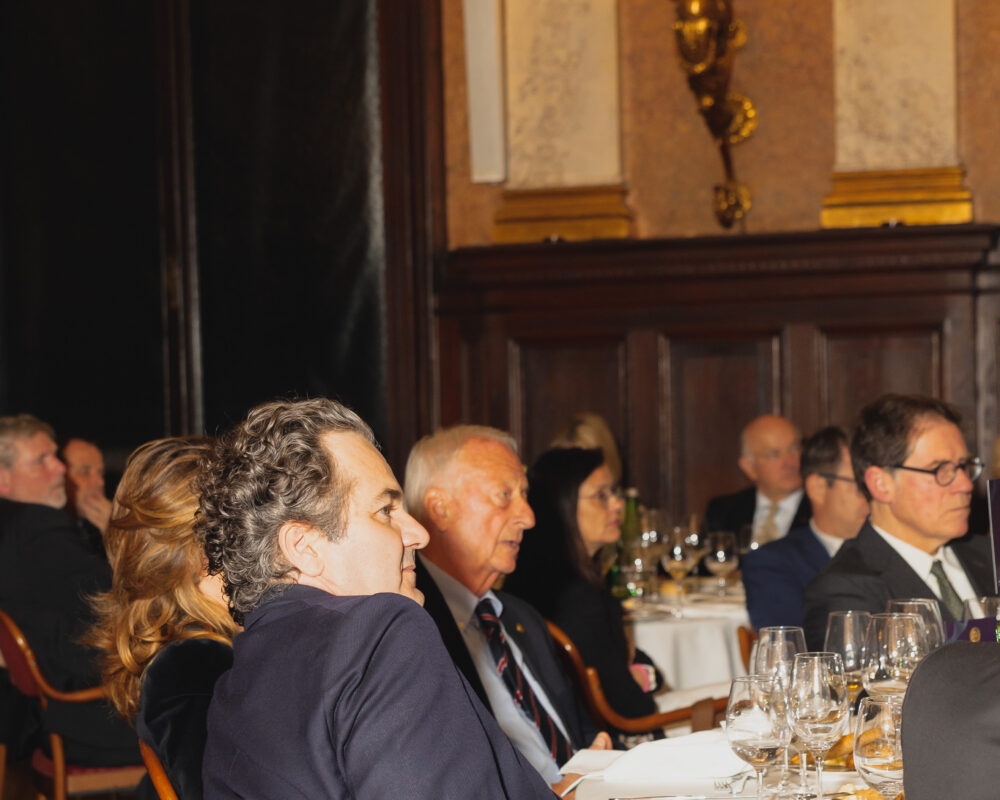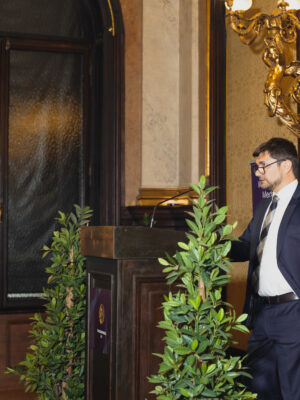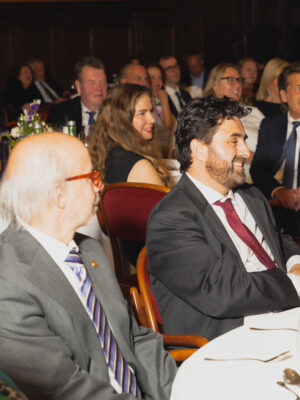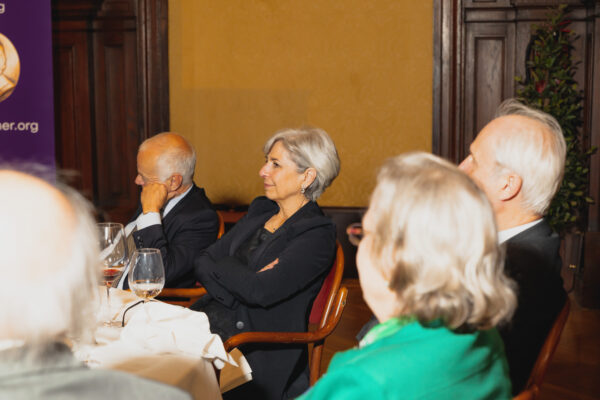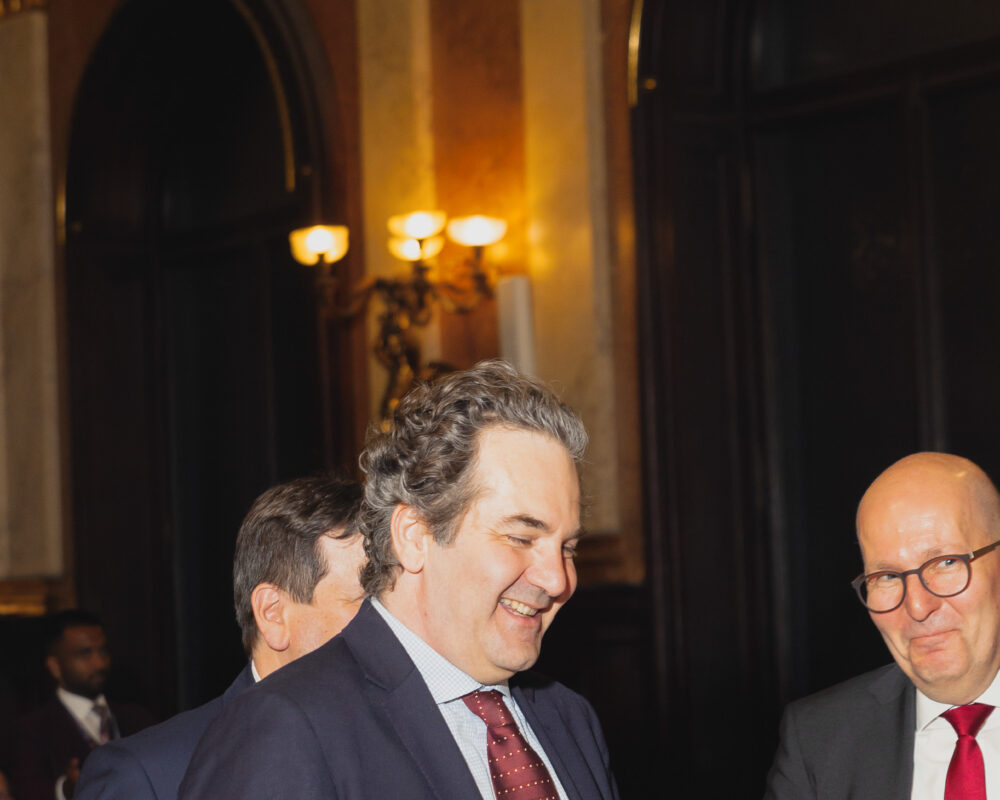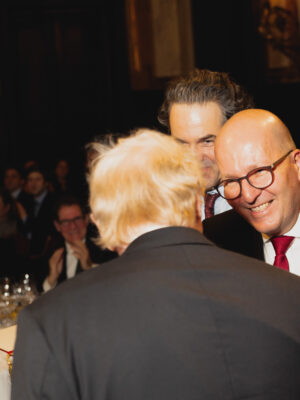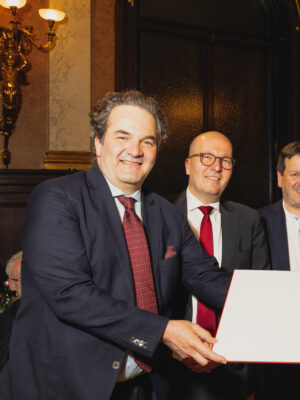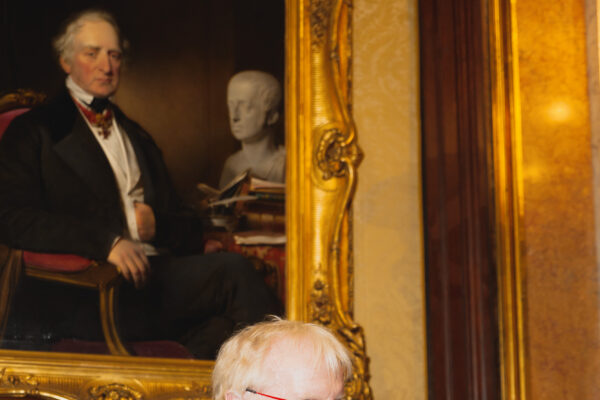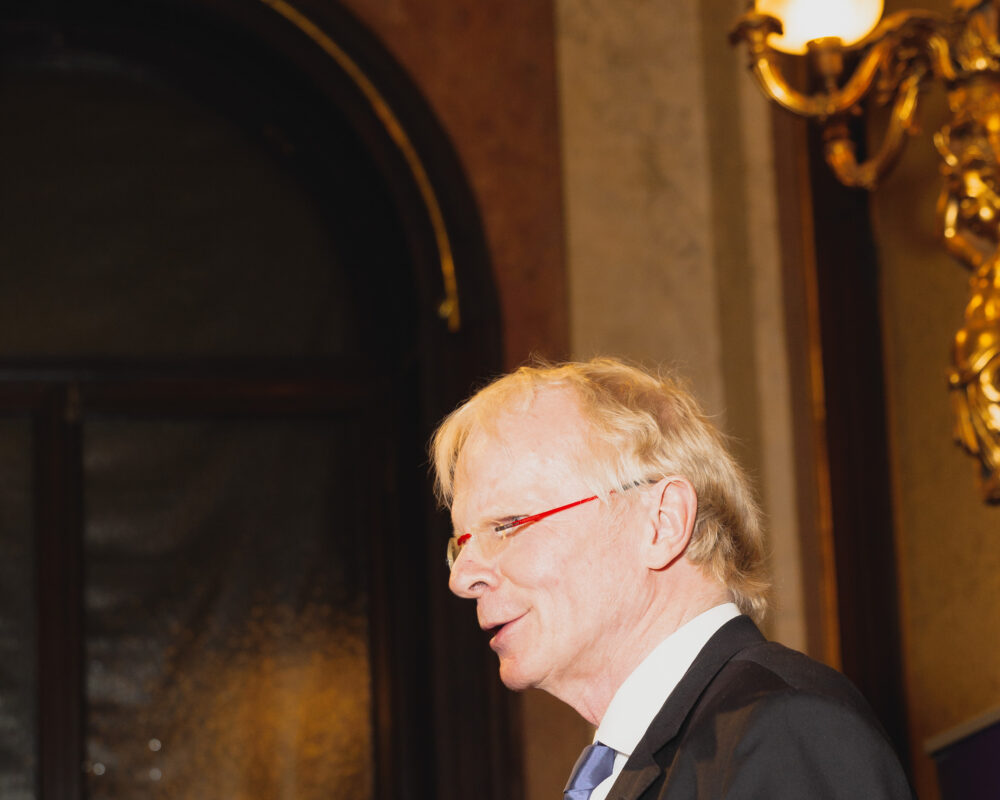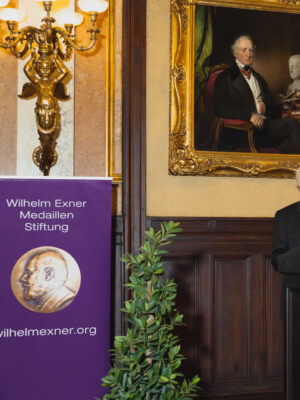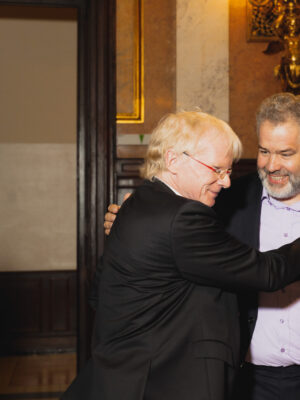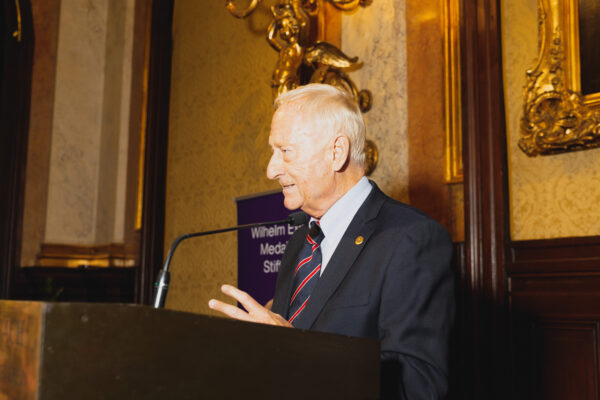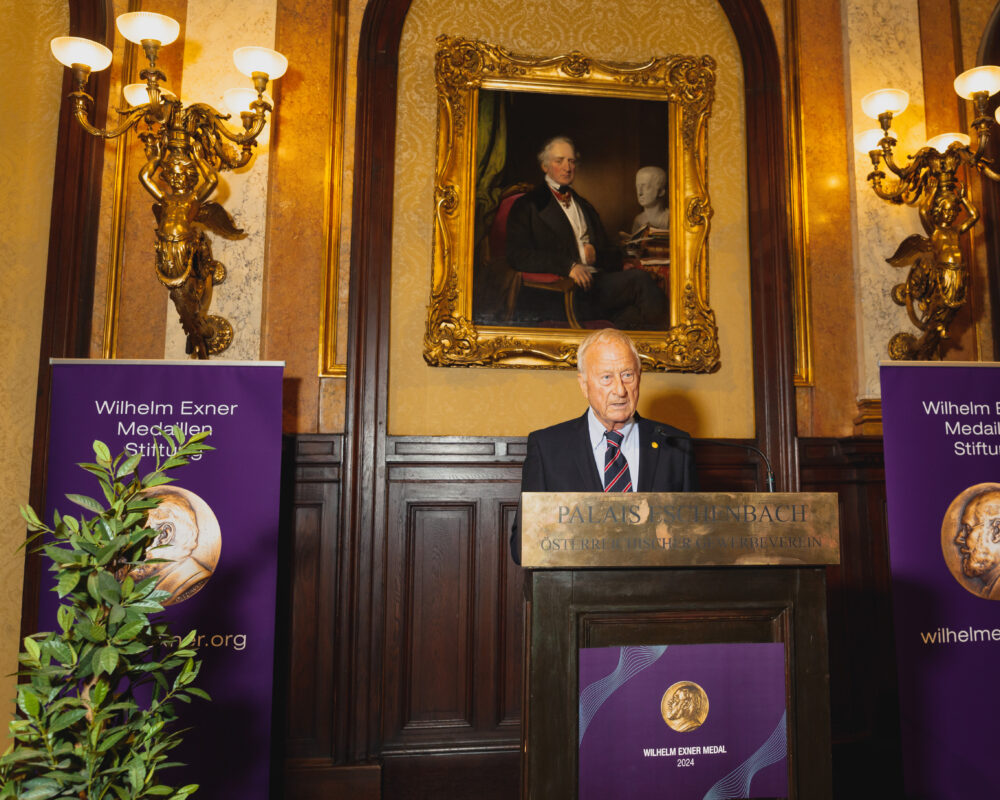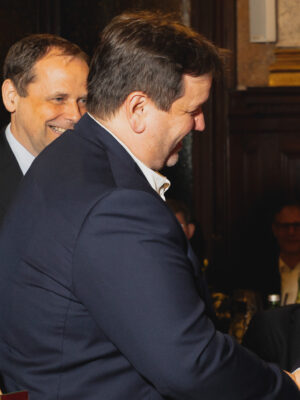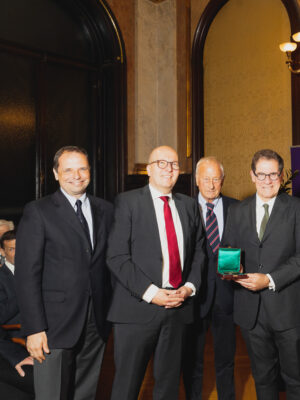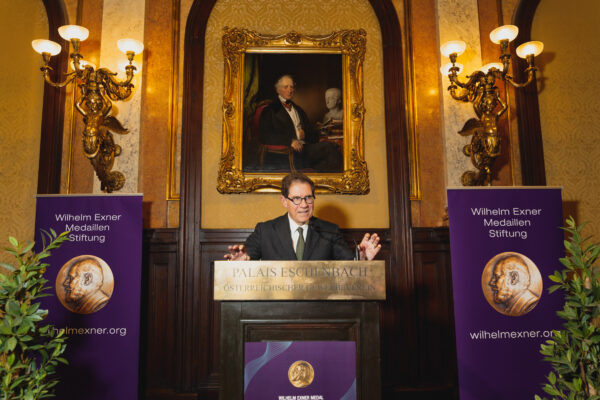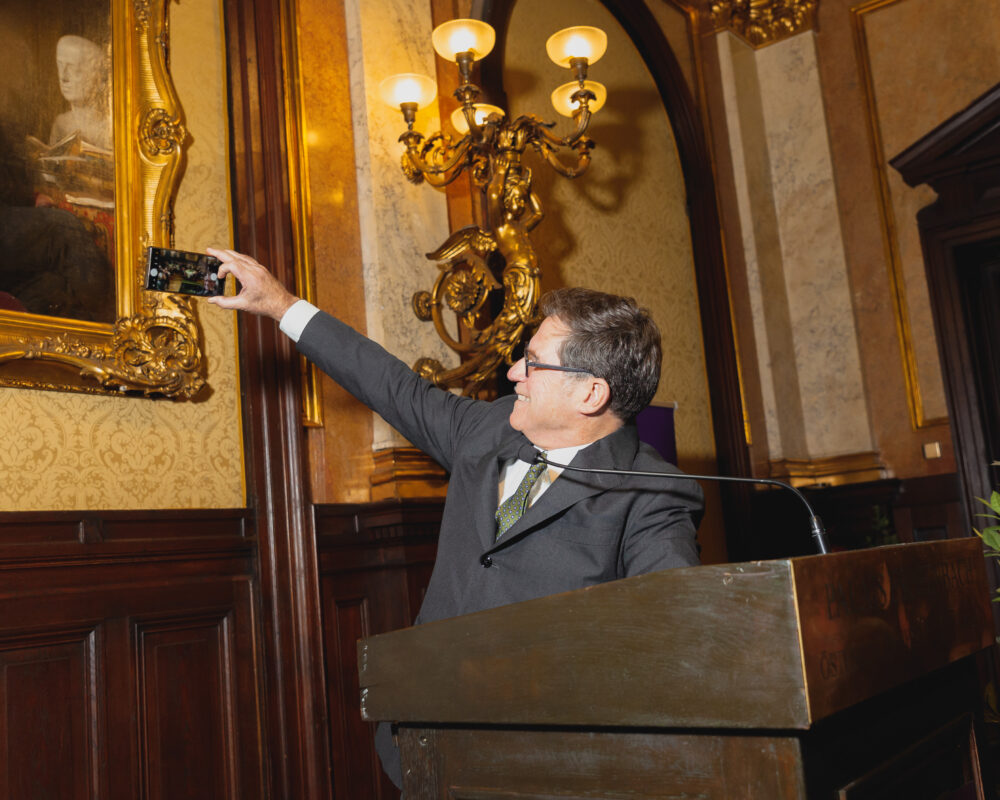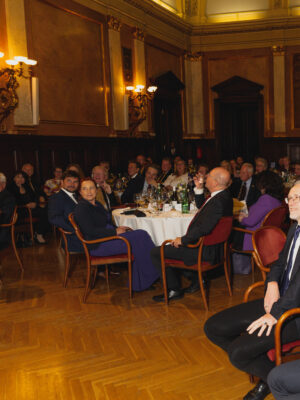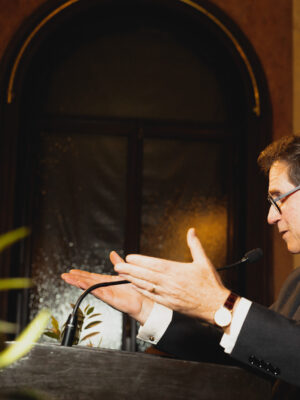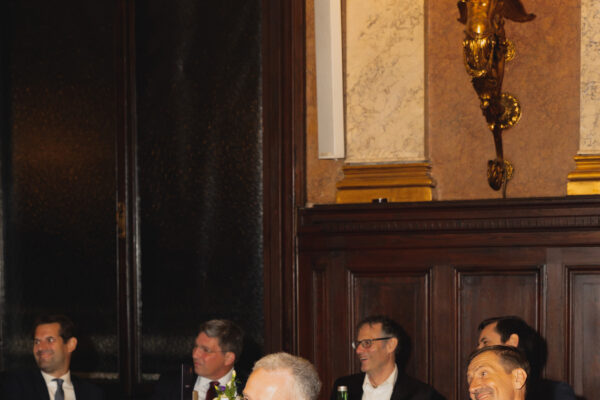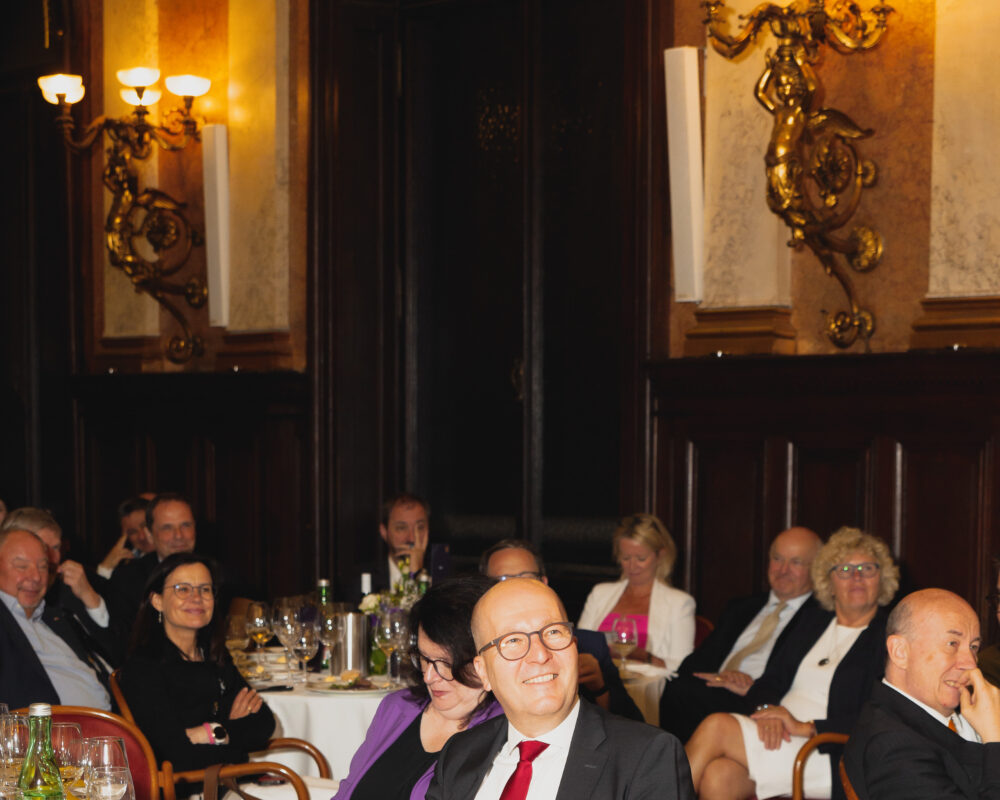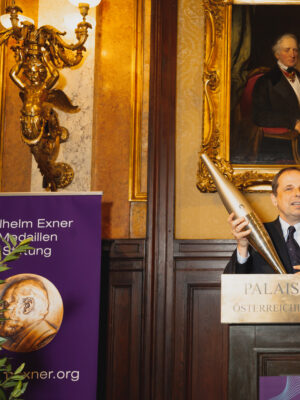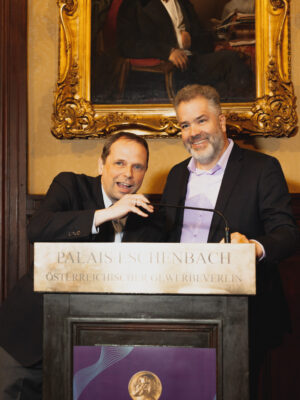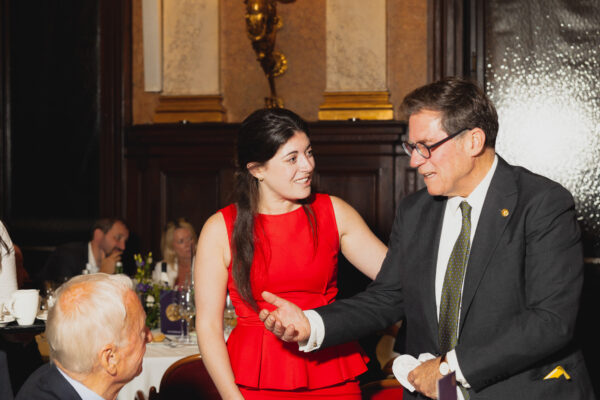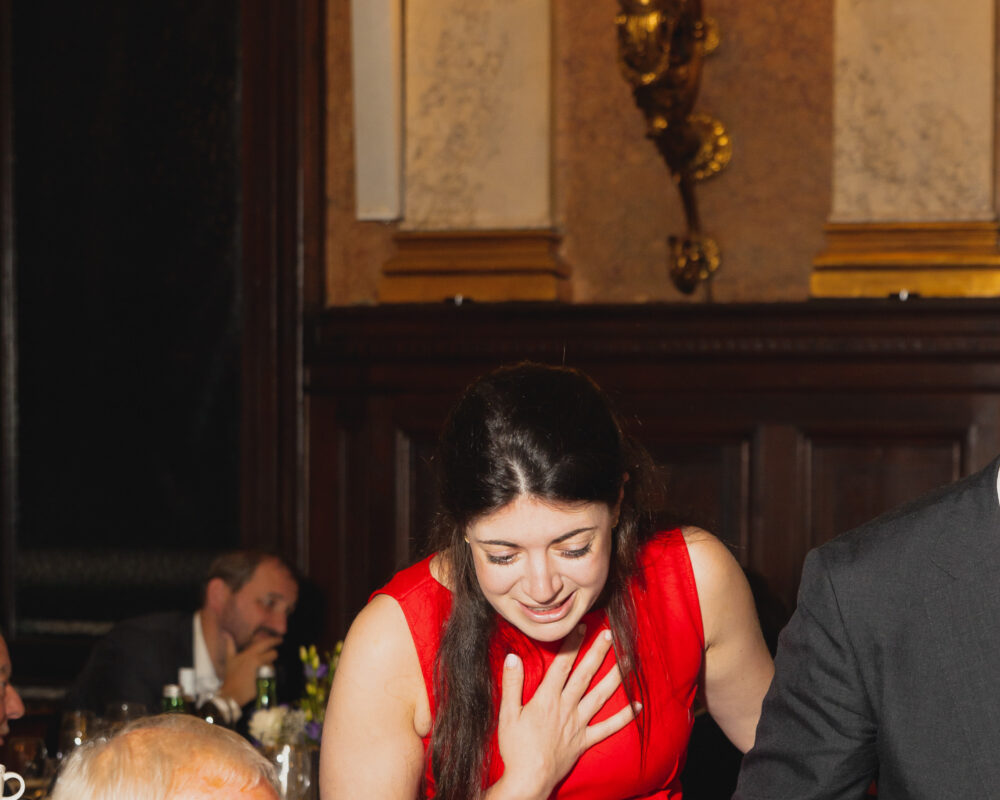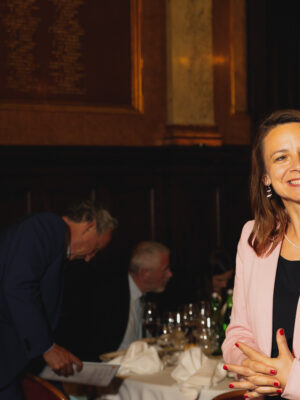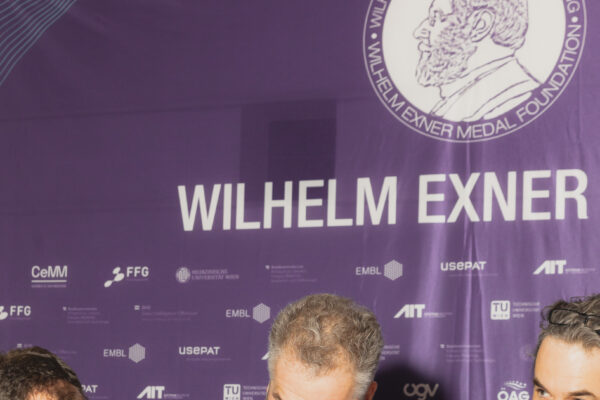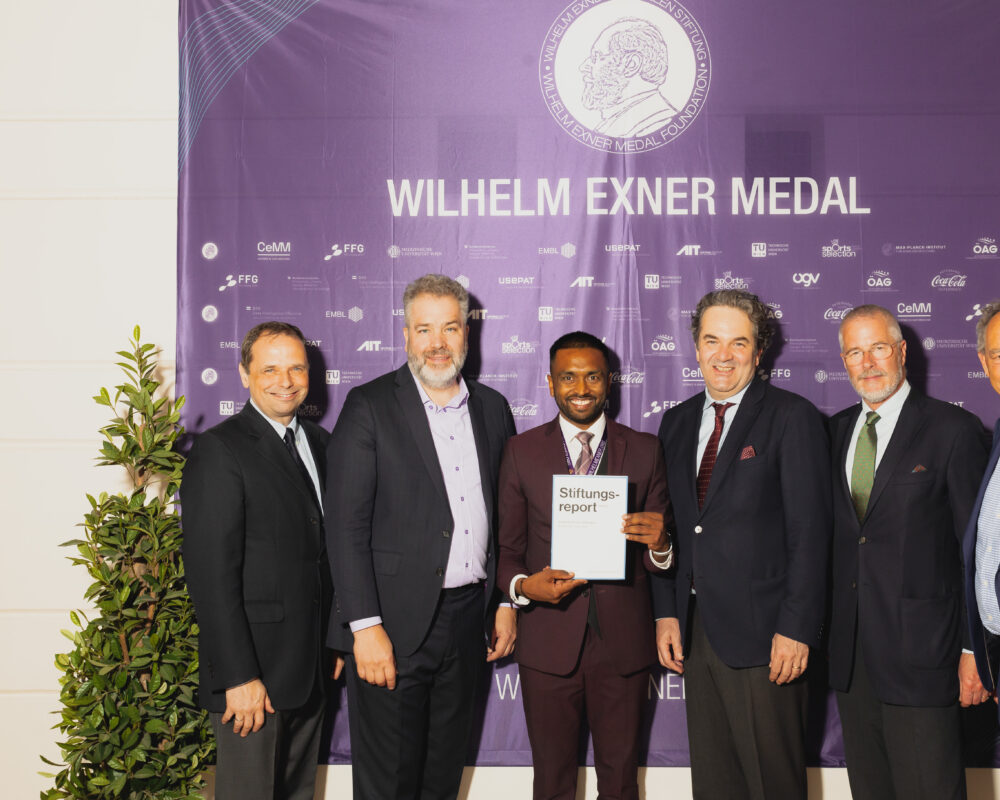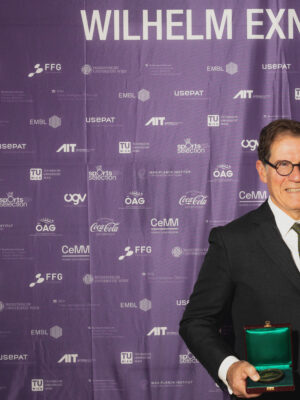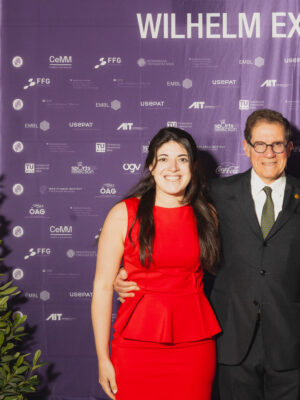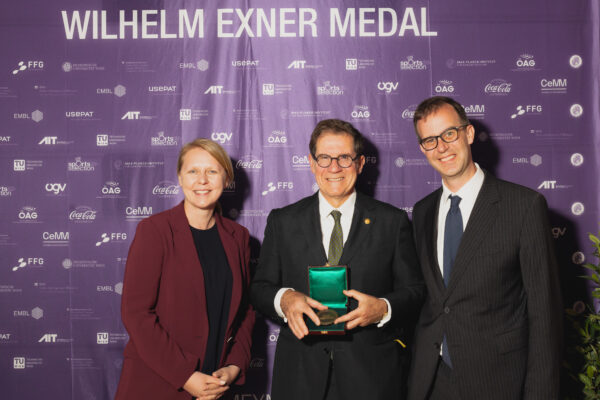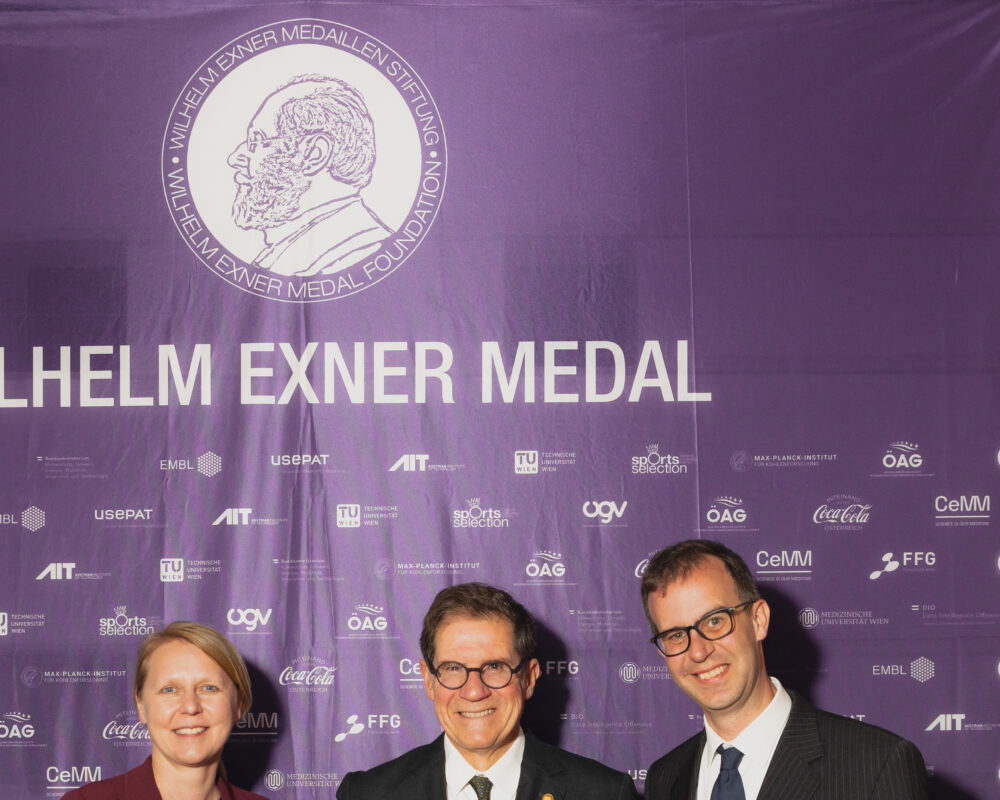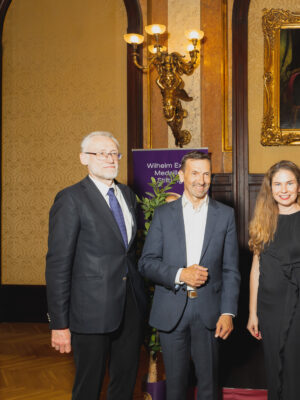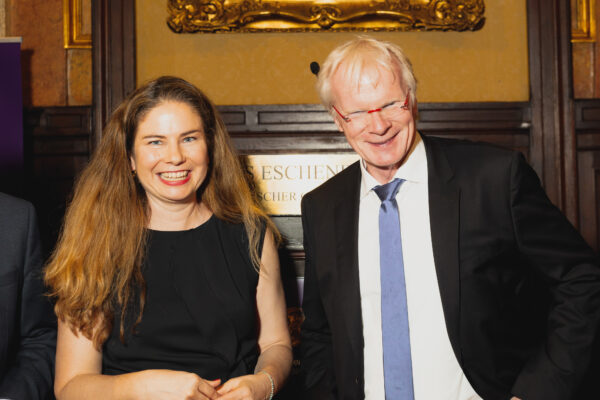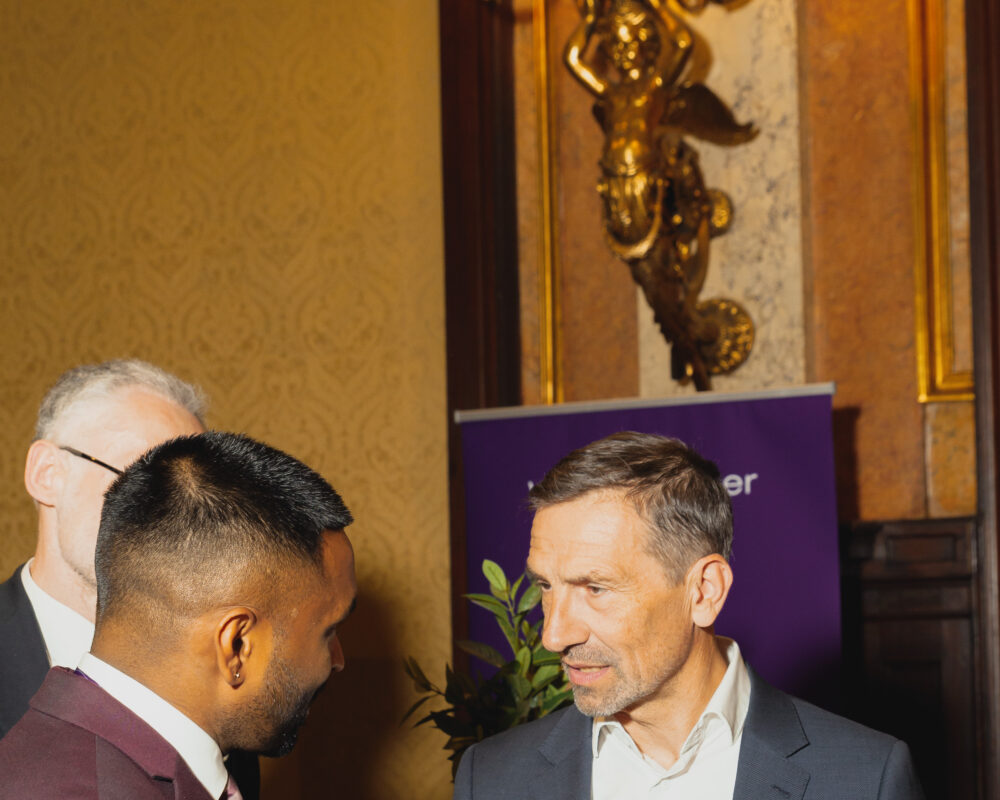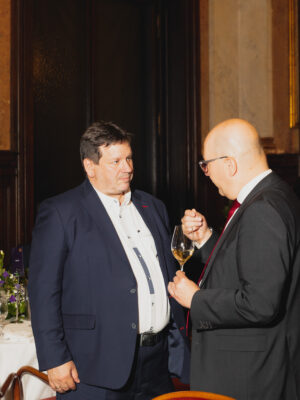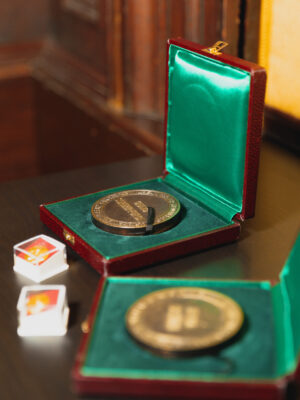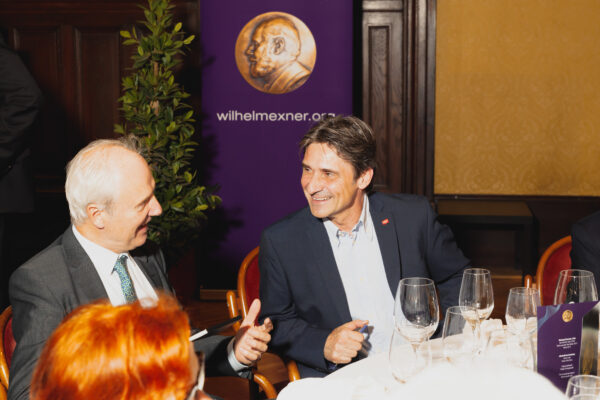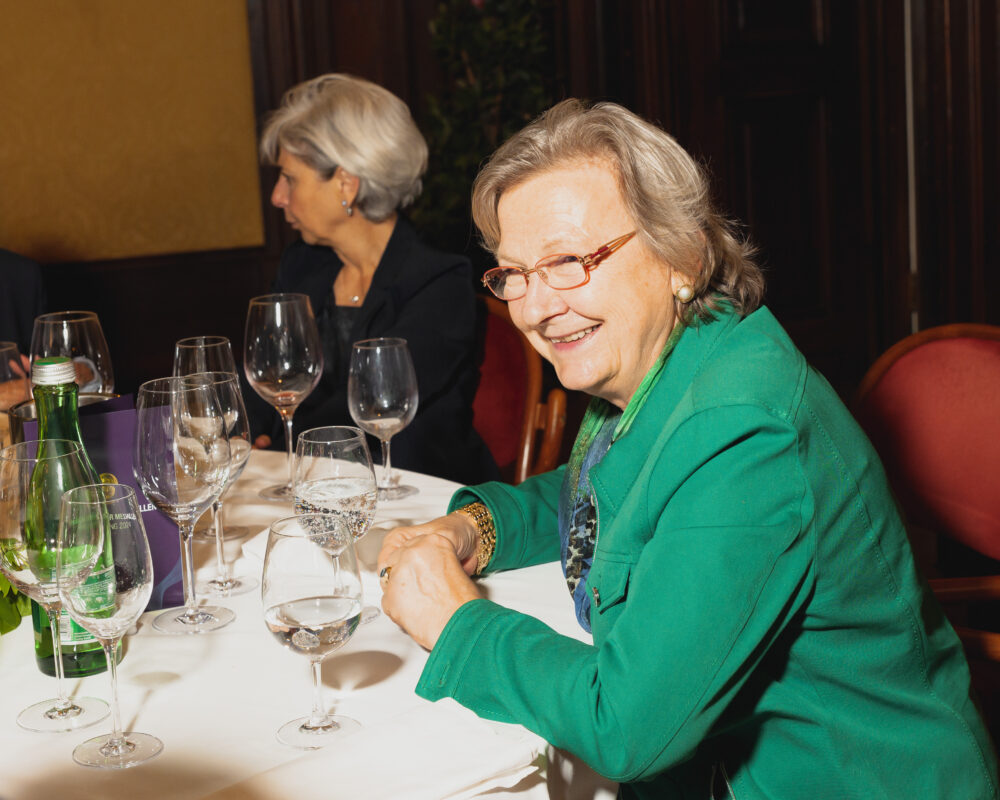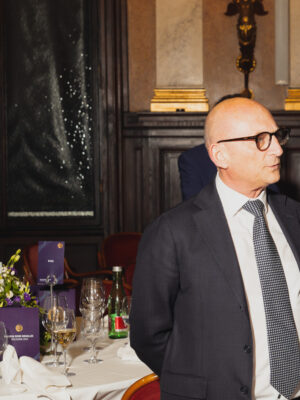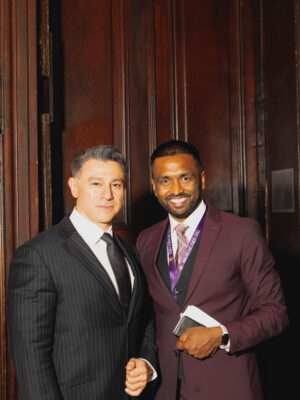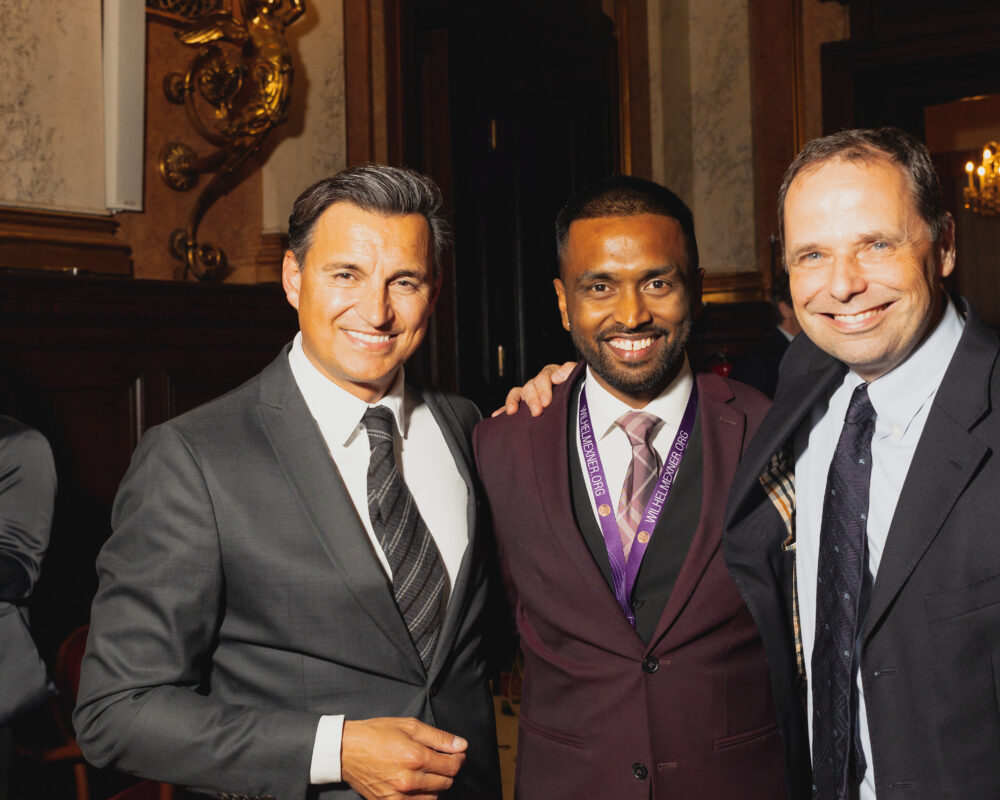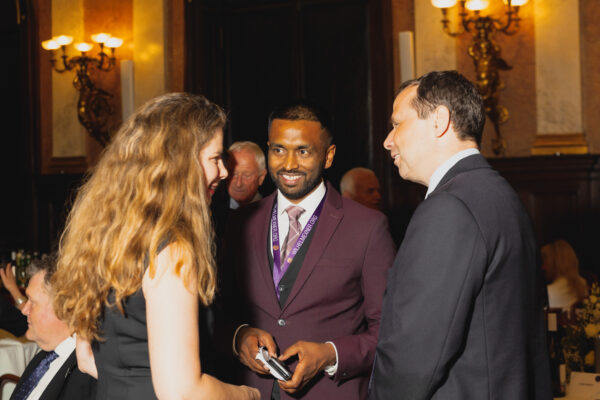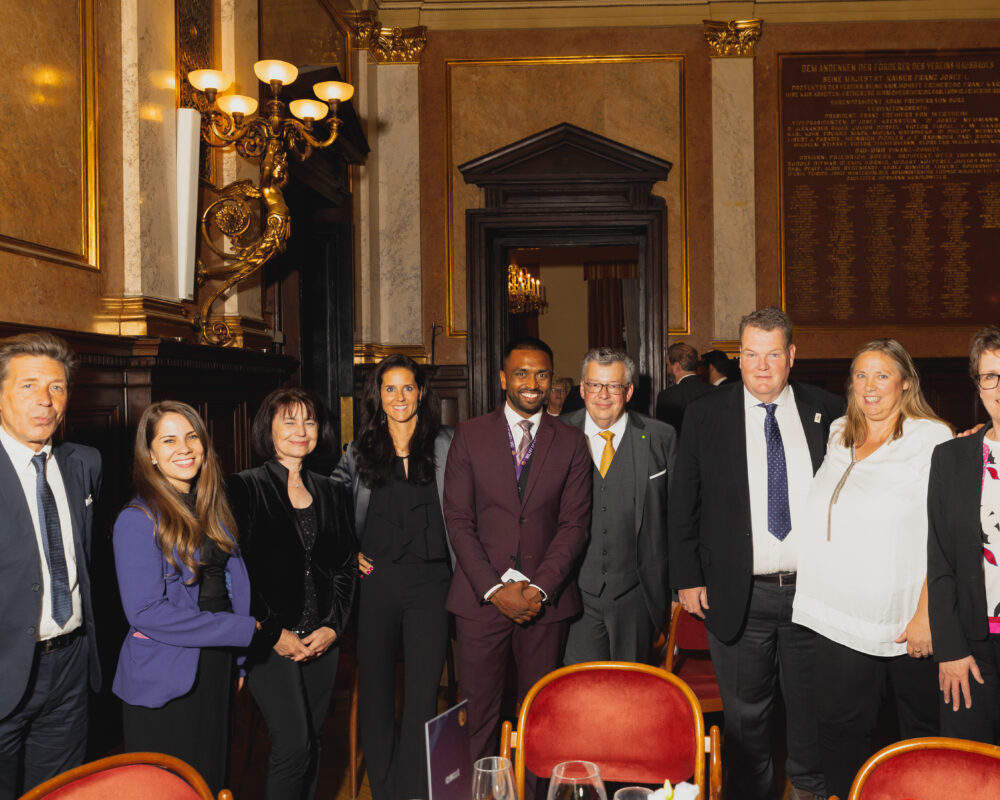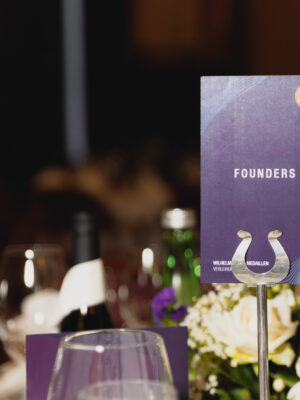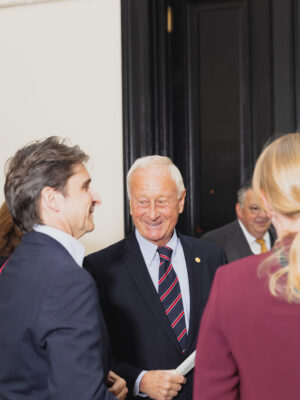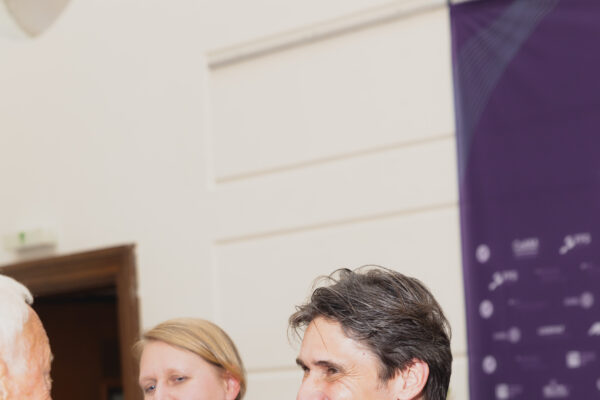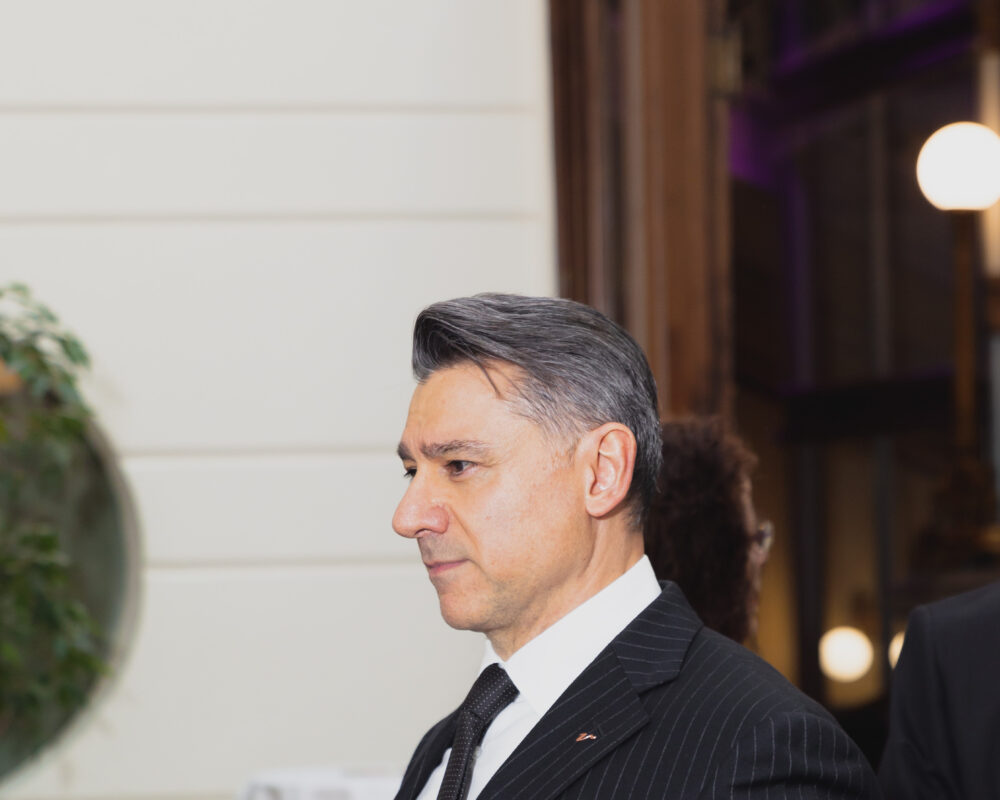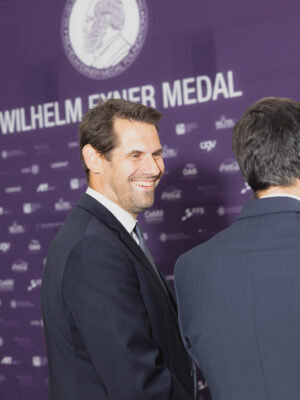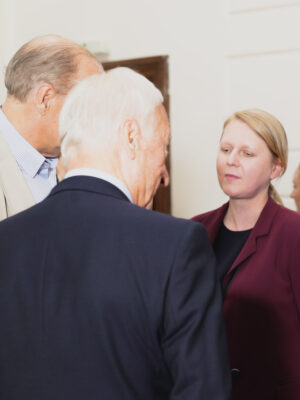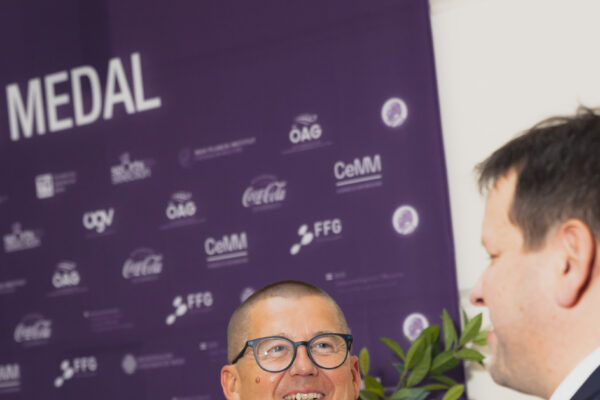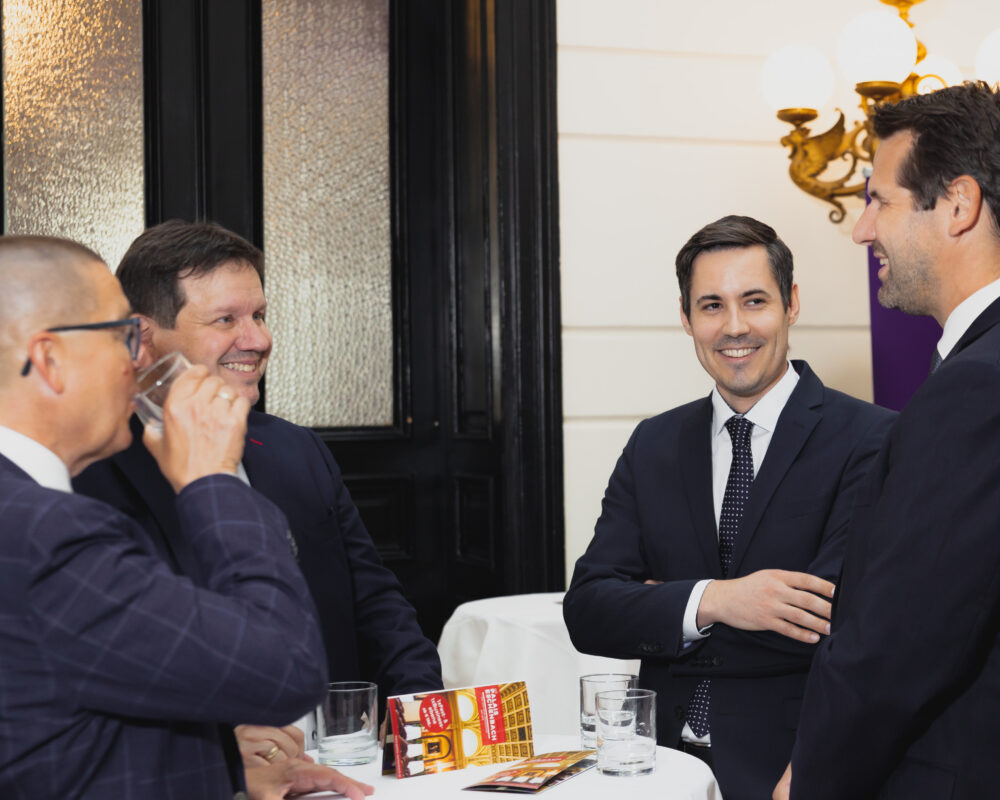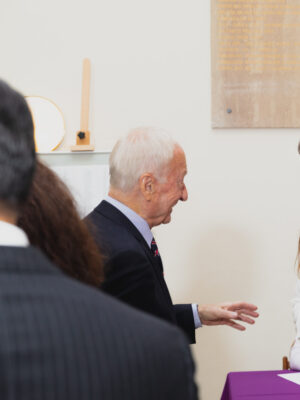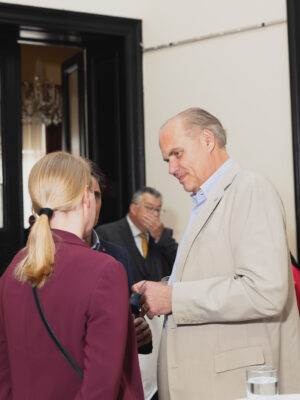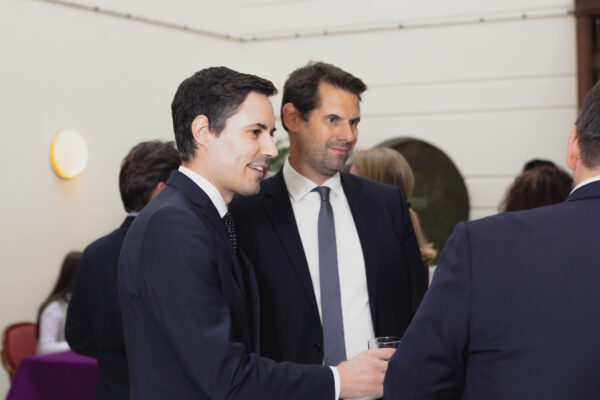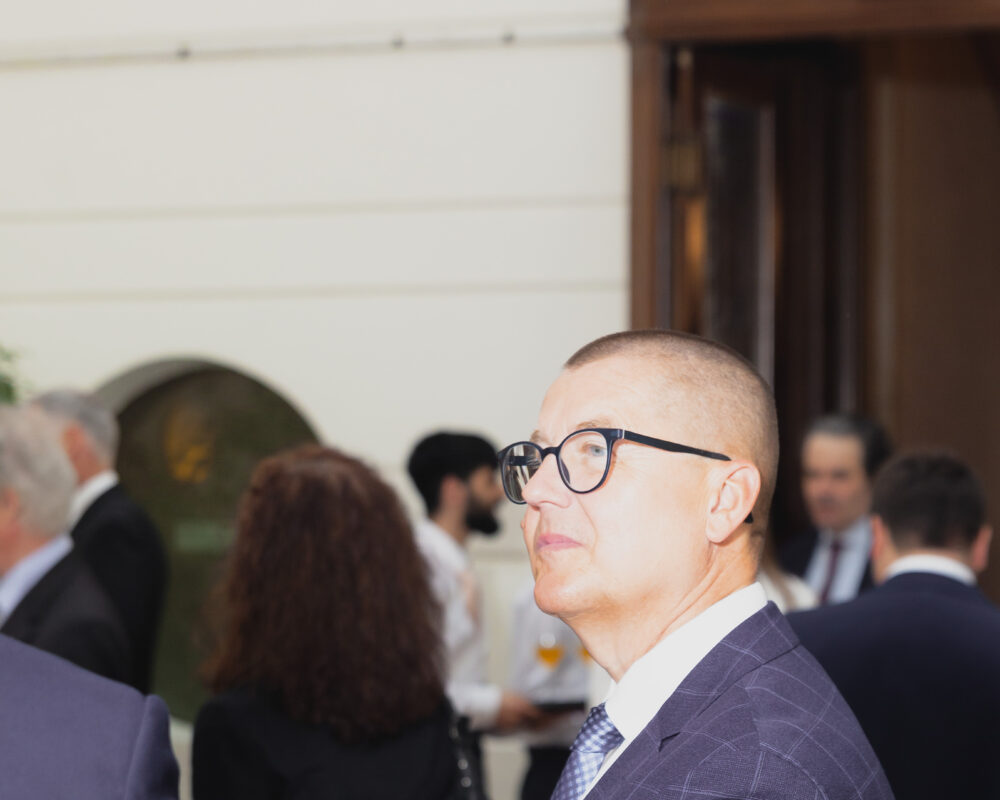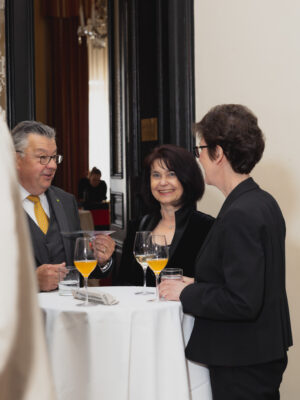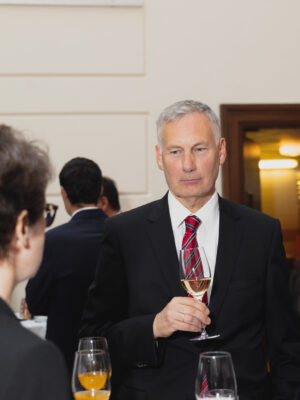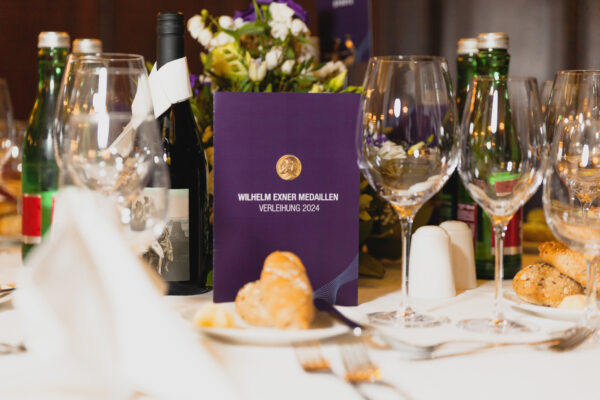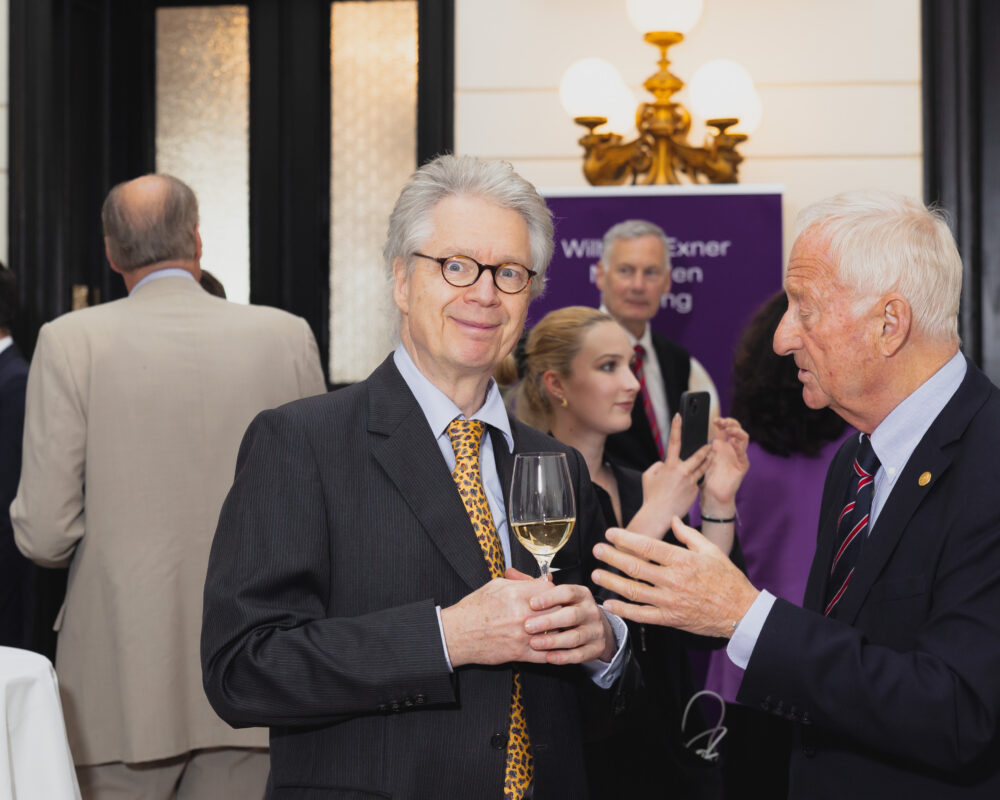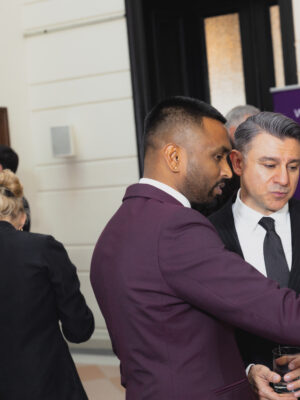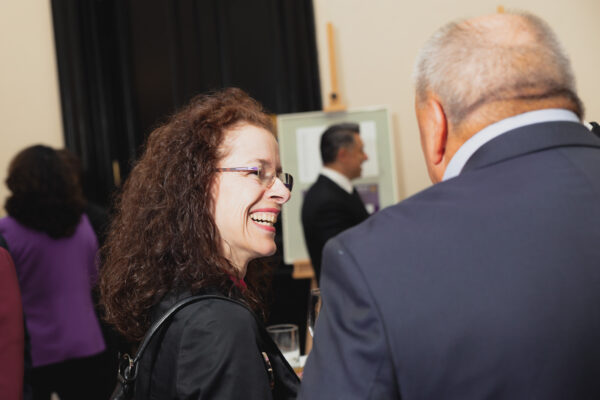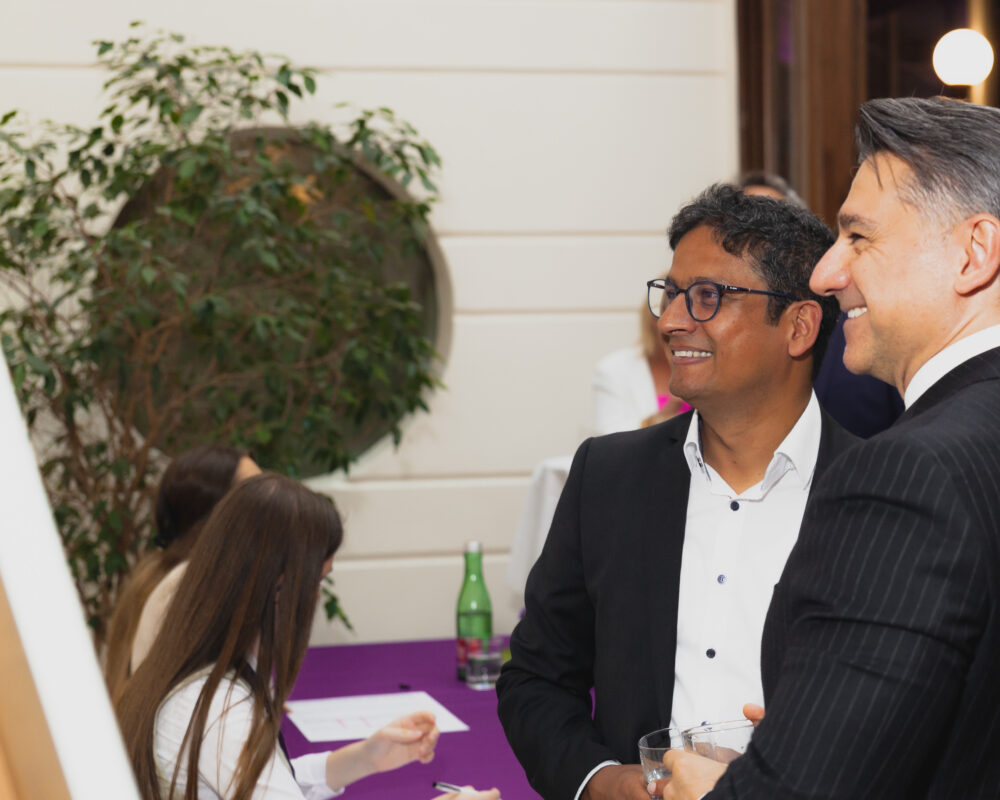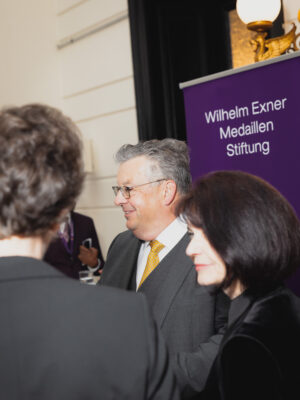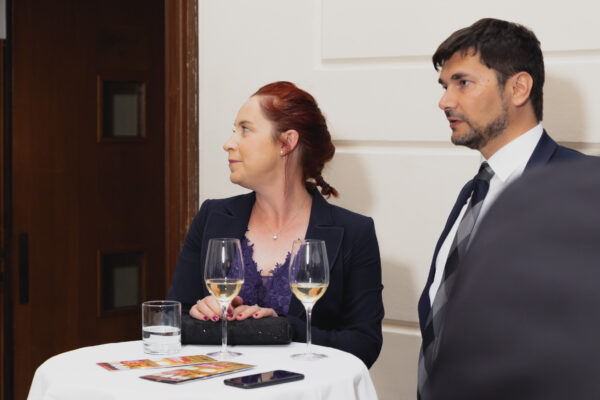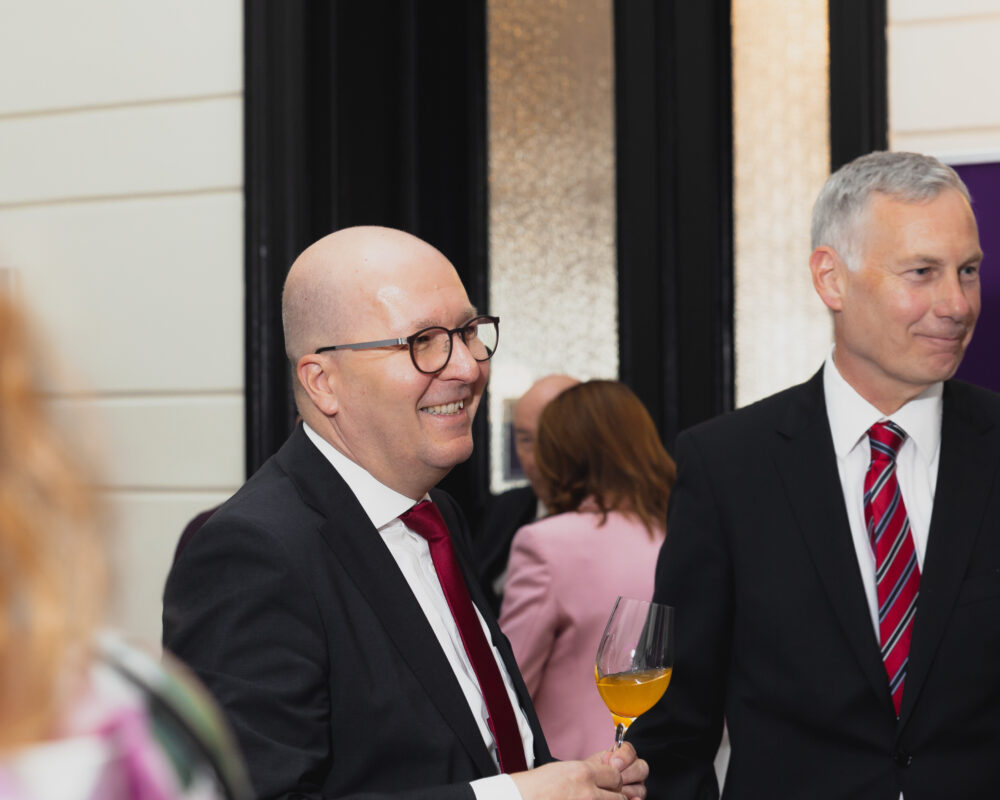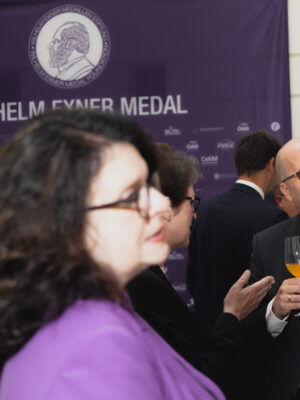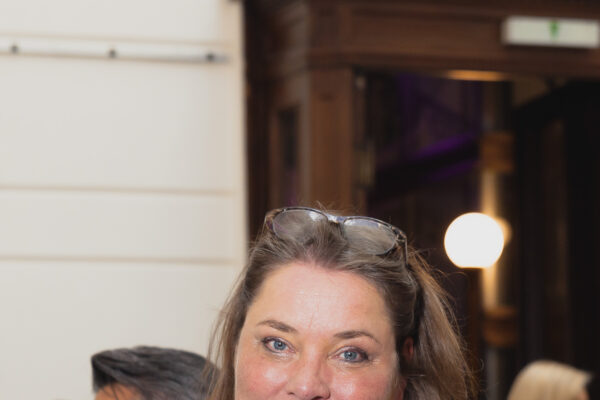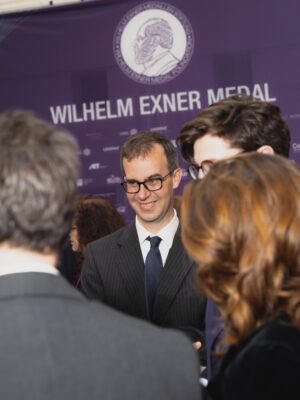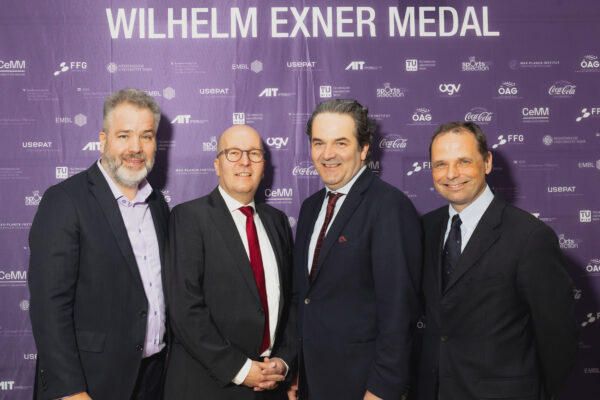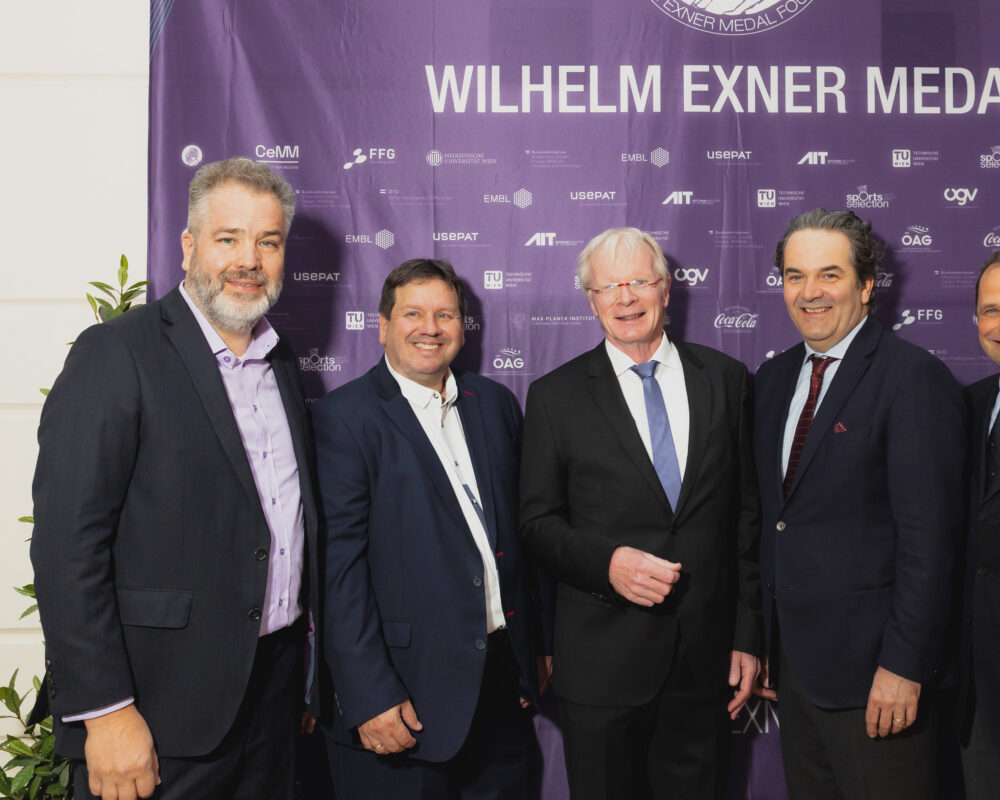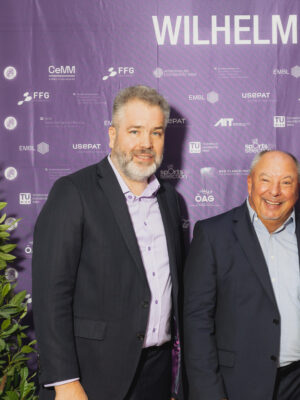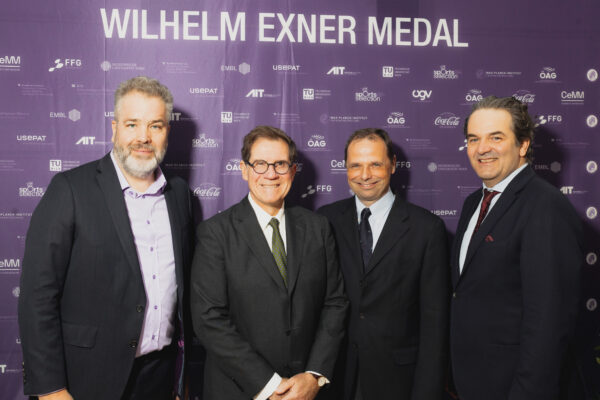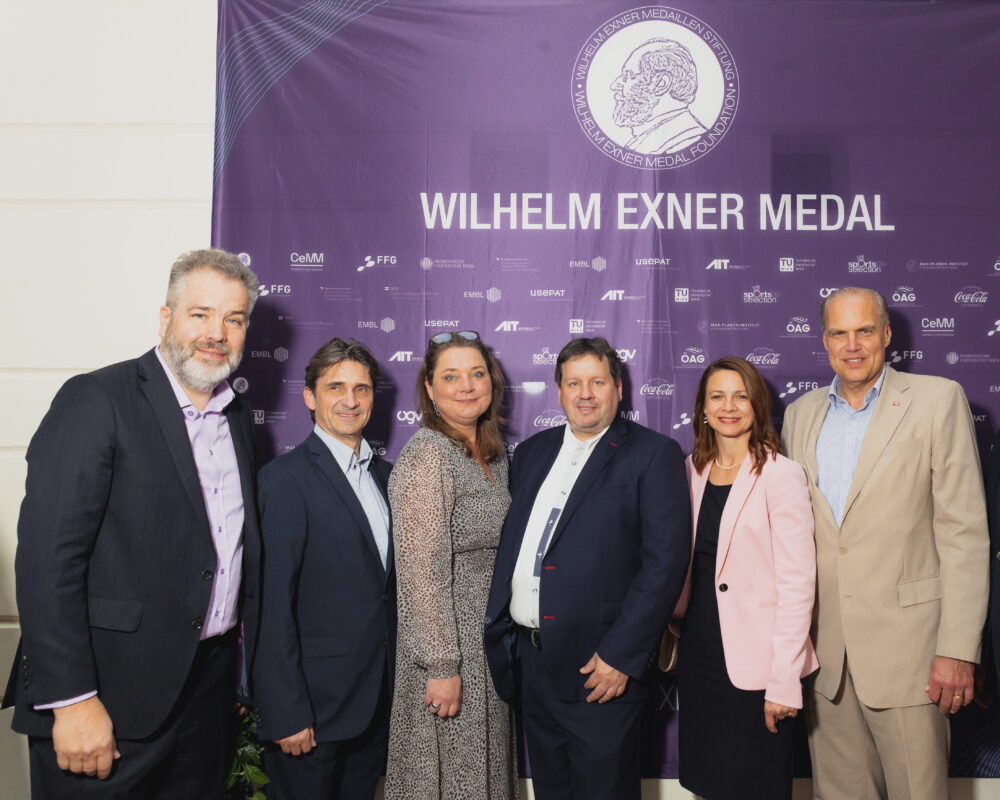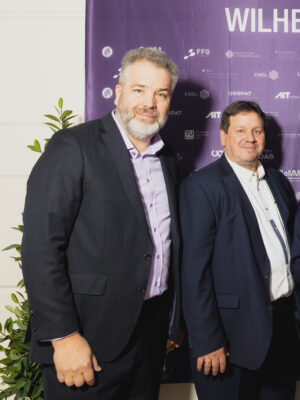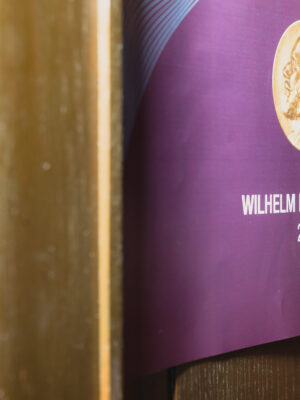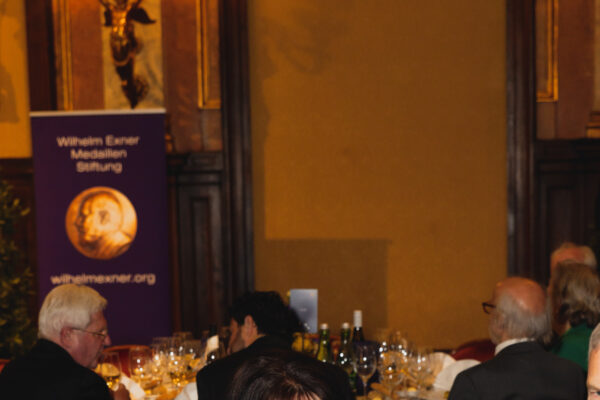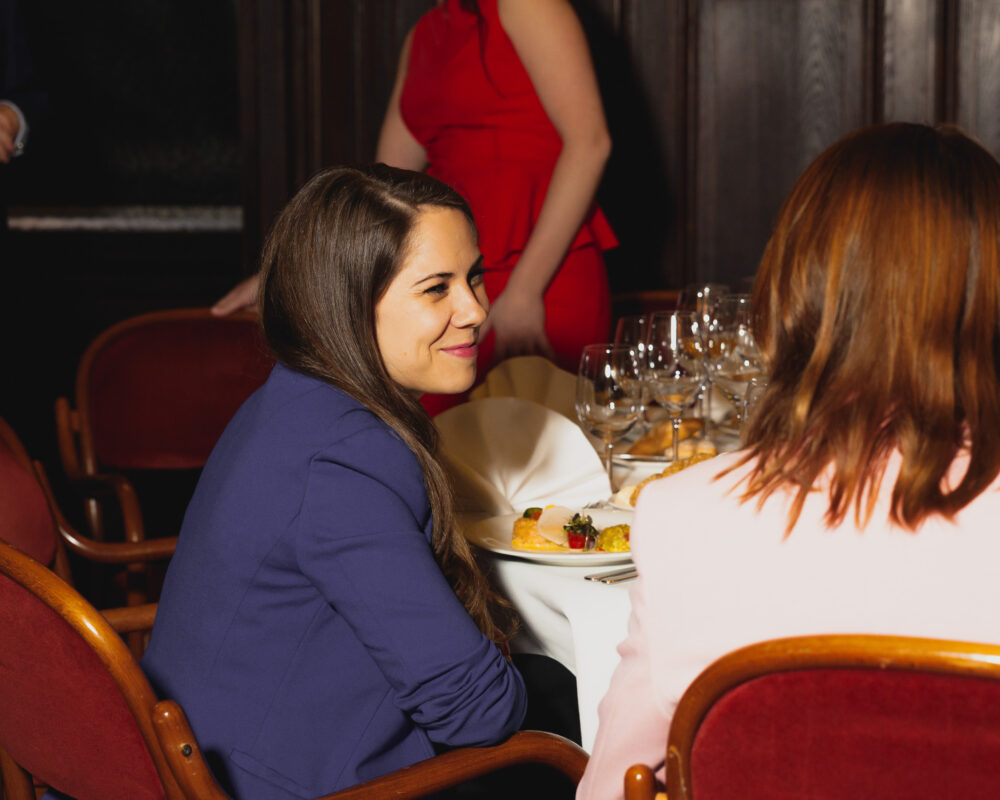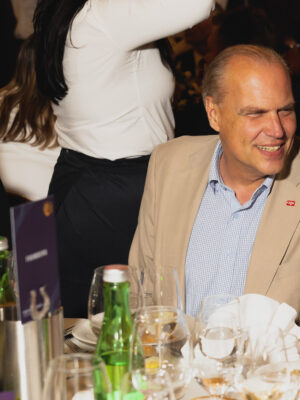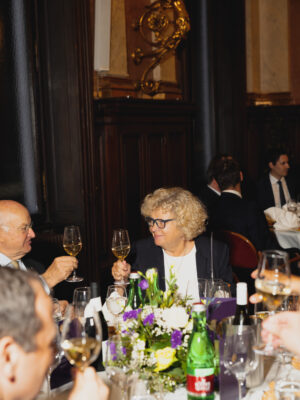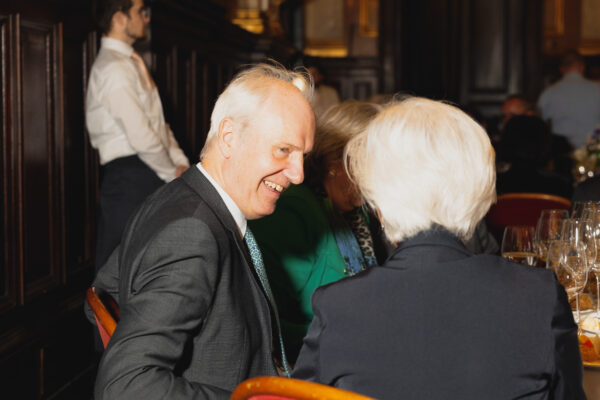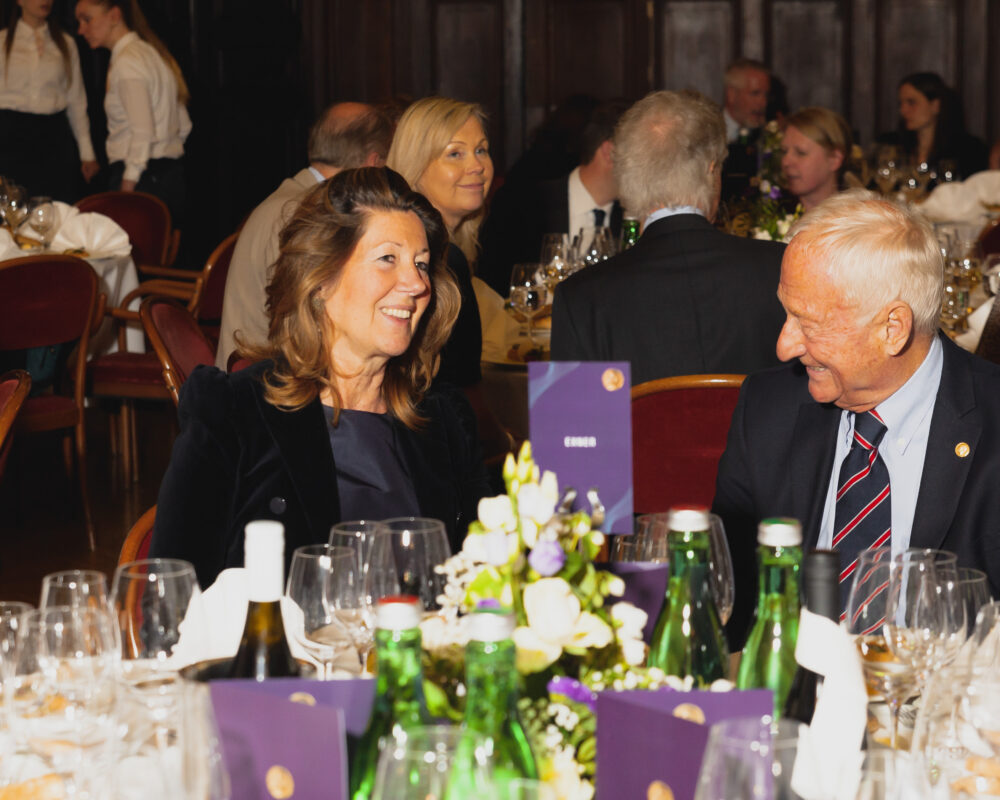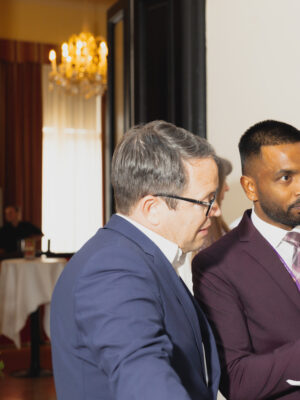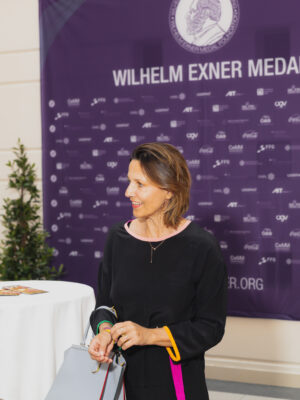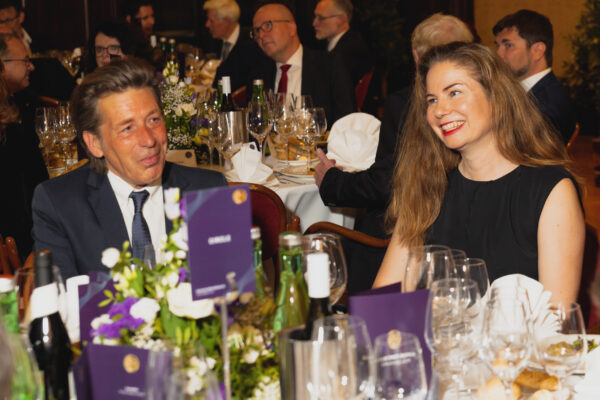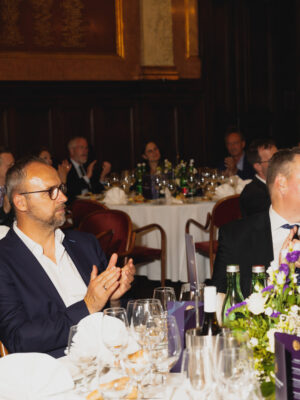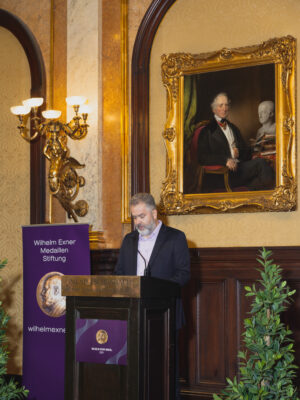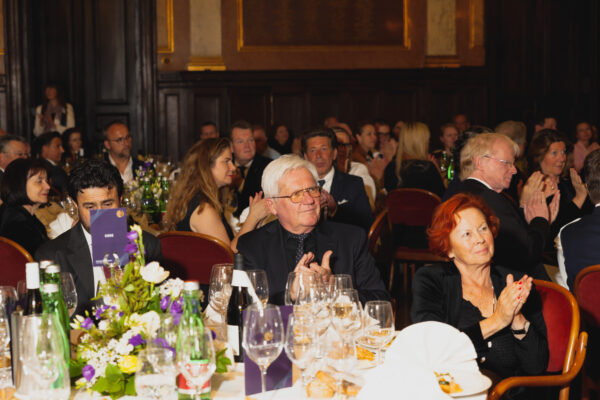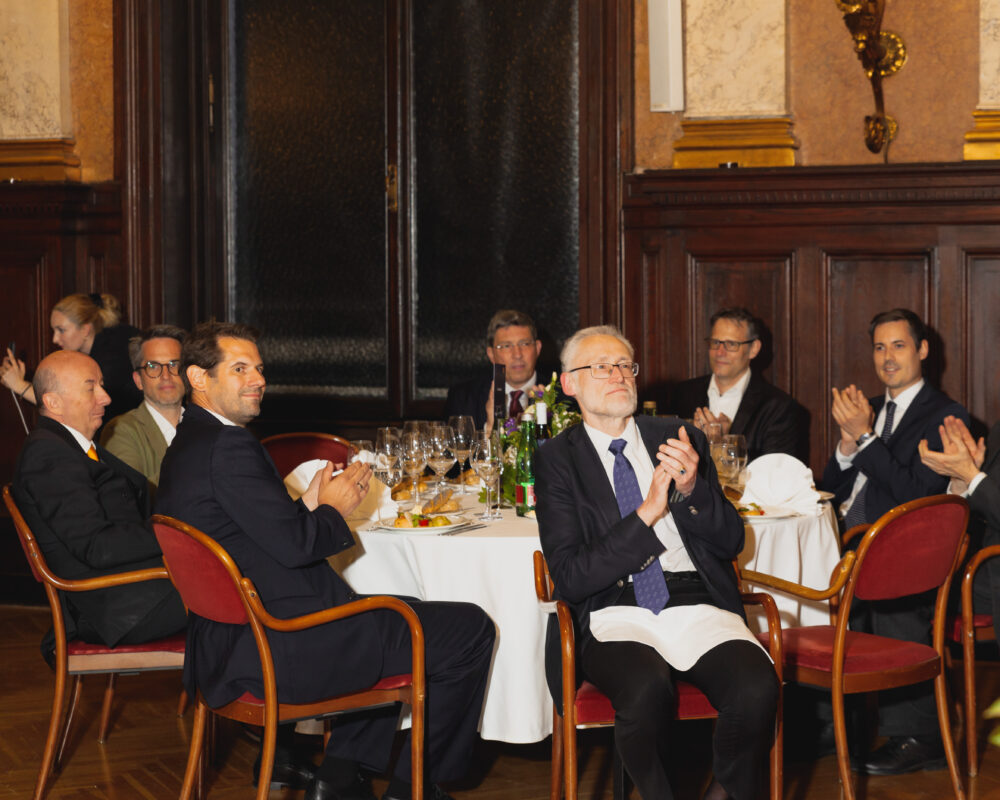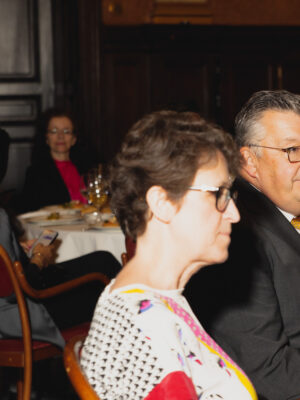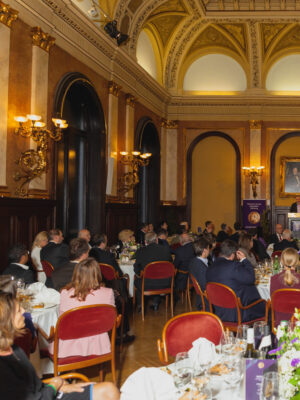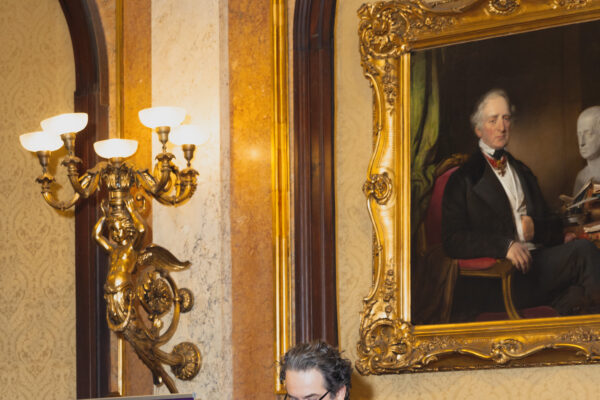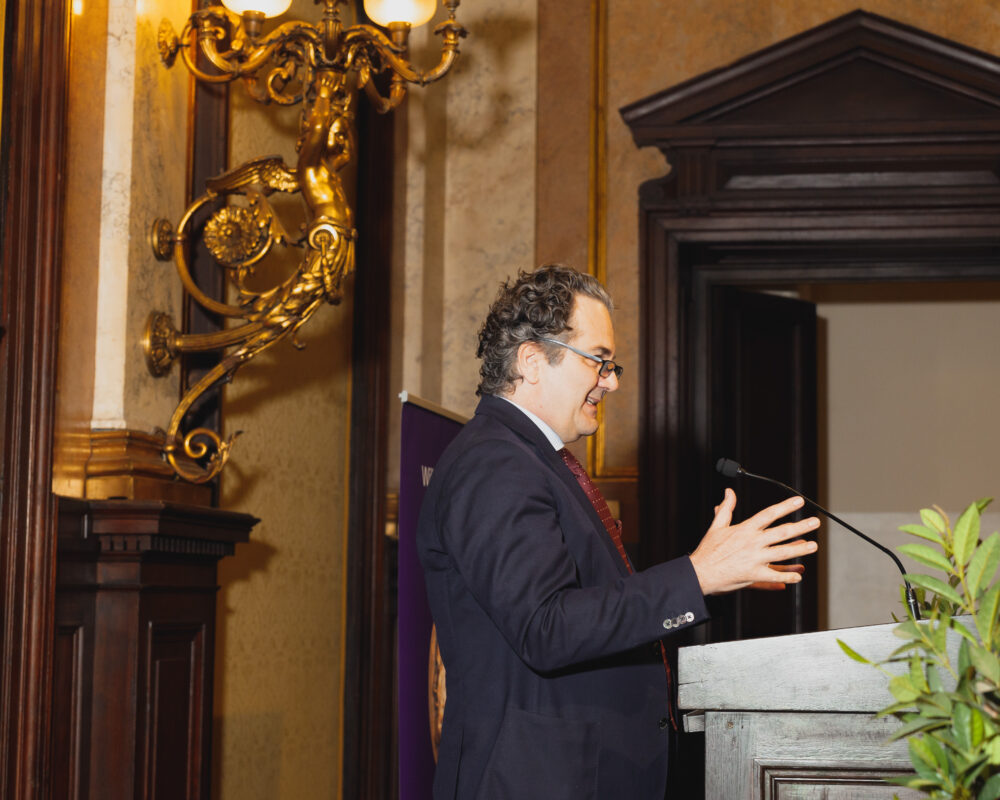The Wilhelm Exner Medal was presented to outstanding scientists and researchers for the 90th time. In mid-May in Vienna, the Wilhelm Exner Medal Foundation honored Prof. Dr. Giulio Superti-Furga and Prof. Dr. Ferdi Schüth, two researchers whose discoveries are now among the basic laws of their disciplines. The diverse research results of all the laureates are characterized by a connection to business practice and therefore fully correspond to the principles advocated by Wilhelm Exner, which are promoted by the non-profit foundation in the sense of “Social Innovation Responsibility”.
Giulio Superti-Furga
Giulio Superti-Furga is an exceptional scientist and leader. Trained in molecular biology by the Exner Medal winners Max Birnstiel and Charles Weissmann and the Wittgenstein Prize winner Meinrad Busslinger in Zurich and Vienna, he has developed an extraordinarily creative research direction with the CEMM, the Research Center for Molecular Medicine of the Austrian Academy of Sciences, which dares to break new ground and open up new areas. His science covers an extraordinarily broad spectrum of topics.
Without him, we would have a much poorer understanding of the tasks, interaction and mode of action of human cells and proteins and would know little about how exactly they communicate with each other and fulfill their tasks. His work has also been groundbreaking in questions of innate immunity and the development of diseases (such as cancer).
Above all, his influence is multiplied by the leaders he has trained, the companies he has founded, the tools he has made available to the community and the transdisciplinary discourses he has initiated. All in all, Superti-Furga has created a very large scientific, social, cultural and economic impact that makes him an ideal recipient for the Wilhelm Exner Medal.
Ferdi Schüth
Ferdi Schüth is a renowned German chemist known for his contributions in the field of catalysis and materials science. Educated at the renowned universities of Münster, Minneapolis and Frankfurt, he has been Director and Scientific Member at the Max Planck Institute for Coal Research since 1998 and Honorary Professor at the University of Bochum since 1999. From 2014 to 2020, he was Vice President of the Max Planck Society.
His research focuses on porous materials with high internal surface areas, which are important for innovative applications in catalysis. In recent years, Ferdi Schüth has been particularly active in the field of energy research. His achievements include work on hydrogen storage, the development of a storage system to application maturity, research into the conversion of biomass and the development of new materials for electricity storage. Ferdi Schüth is also researching the production of fuels and chemicals from biomass such as wood and cellulose. He achieved a significant breakthrough in the production of methanol from natural gas using a new catalyst.
Schüth founded hte, the high throughput experimentation company, which is now the market leader in its field and employs around 350 people. His latest discoveries concern the mechanocatalysis of gas-phase reactions, which enables increases in reactivity of several orders of magnitude. Schüth also has a deep concern for the science system in general and has always had technology transfer and the relationship between science and the commercial sector on his agenda.
Social Innovation Responsibility
Innovations are the miracles of our time. With the right framework conditions, a multiple of what is invested can be created: whether in basic research or in applied science. More excellence in education and research also means more sustainable companies, more start-ups, more jobs, more investments, more opportunities. Innovation is the driving force behind growth and prosperity.
However, innovation does not take place in isolation from society. It is the result of a complex interplay that requires responsibility, understanding and trust. Science and technology influence our daily lives, our knowledge, our relationships, our ethics, our feelings, our communication, our decisions and therefore our future. It is up to us to pave the way for our society’s ability to innovate. It is about social innovation responsibility.
Mission
Every year, the Wilhelm Exner Medal Foundation sends out a clear signal that only the cooperative interaction between researchers, entrepreneurs and employees is the solid basis for prosperity and growth. Exner promoted these three cornerstones of economic development throughout his life. The foundation is still committed to this commitment today and has set itself the task of passing on the Exner spirit and honoring pioneering developments and inventions. The foundation, medal winners and research institutions have set themselves the task of creating awareness of “Social Innovation Responsibility” in the country and its people.
